#translate and break down their reality into a fantastical setting :(
Text
i’m so sorry but if you’re in the ‘fantasy media is escapism I don’t want to think about any REAL world problems‘ crowd then why are you posting about the witcher. there are few fantasy sagas that are quite so explicit and intentional as the Witcher when mirroring its characters, world, and conflict around real people, politics, and everyday struggles. also that’s why it’s GOOD
#this is not about netlix I don’t watch the show n I don’t care abt it#don’t worry im not really vaguing anyone on here it’s just stuff I read online and in articles and social media in general#tires me out and also makes me sad for the long and important legacy of fantasy authors and creators doing their best to#translate and break down their reality into a fantastical setting :(#like don’t do sapkowski like this he worked hard to make this real#the witcher#the witcher books#double shot
879 notes
·
View notes
Text
A strange and unsettling reading rec list
Kobo Abe: The Box Man, The Woman in the Dunes, The Face of Another
Kobo Abe was a prolific Japanese postmodernist author whose work deals heavily with questions of identity, existence and meaning in odd and surreal settings. The Box Man starts out as a tale of urban alienation before plunging headfirst into a confusing labyrinth of questions unanswered; The Woman in the Dunes sees an everyday figure trapped in a nightmarish living situation with a mysterious companion, while The Face of Another is a twisted meditation of identity and appearance (the latter two have also been adapted into excellent movies by New Wave director Hiroshi Teshigahara).
Italo Calvino: Invisible Cities
This lyrical, haunting journey takes us into the world of cities. Imaginary cities, existing cities, fantastical, dreamed and made up, will-be or has-been cities. Do you understand it? Do you feel it? It works both ways.
Adolfo Bioy Casares: The Invention of Morel
While not perfect, this unsettling pseudo-sci-fi novella from a contemporary of uncanny master Jorge Luis Borges has one of the most twisted, surprising and grotesque endings I’ve read, embedded in an atmosphere of guilt, paranoia and unrequited longing.
Leonid Andreyev: The Red Laugh
If you are looking for the most visceral, haunting, surreal yet utterly believable depiction of the horrors of war, look no further than this short story from an underappreciated early Russian realist.
Daisy Johnson: Sisters
A tense, dreamlike, vinegar-sharp twist on the classic Gothic premise of ‘strange women in strange houses’, this short little novel was one of the most surprising and satisfying reads of the year for me.
Victor Pelevin: The Yellow Arrow
Without spoiling the premise, this little travel story is both heavily existential and elegantly symbolic, while steeped in the categoric Eastern European down-to-earth reality, and just enough mystery to make you think. Studying it in college was a formative experience for me.
Friedrich Durrenmatt: A Dangerous Game (US title: Traps)
Not to be confused with the similarly-titled classic short story, this novella is from a brilliant Swiss writer who has been my favorite ever since my middle school German teacher put him on my radar. A master of the odd, the tragic and of the blackest comedy, most of Durrenmatt’s catalog makes for very rewarding reading; but this novella, about the nature of guilt and the absurdities of the justice system was another memorable piece of college study in my life.
Han Kang: The Vegetarian
If you haven’t read yet this (deservedly popular) haunting, powerful story of a woman’s quest for autonomy and identity, do it. Reading it feels like being doused with a shower of ice-cold water and blood - and I mean that as the highest compliment.
Kathe Koja: Extremities
Ex-horror author Kathe Koja first got on the literary radar with her Stoker Award-winning debut novel The Cipher; however, this collection of surreal, grotesque and disturbing short stories is much lesser-known than I feel it deserves. To sum it up: Extremities is a trip to that thin little border where the impossible and the nightmarish breaks through to invade everyday life. Whether the protagonists can deal with it or not... read it and find out.
Pierre Boileau, Thomas Narcejac: The Woman Who Was No More, Faces in the Dark
Boileau-Narcejac were a prolific French crime-writing duo who have sadly fallen to the wayside in recent years, except for fans of classic crime thrillers and European crime fiction (you might know them as the people who wrote the novel Vertigo is based on - yes, the Hitchcock movie). These two novels, from the few of theirs that have been translated into English, are incisive and creepy psychological trips into the psyches of disturbed individuals: a murderer and a blind man who suspects his family members of a strange conspiracy, respectively. Both are twisted, surprising and written with potent imagery that I guarantee will stay with you.

#book recommendations#rec list#literature#literary fiction#postmodern#book rec list#recs tag#my posts
8 notes
·
View notes
Text
UNLOCKING CREATIVITY WITH SORA: HOW TEXT-TO-VIDEO AI IS REVOLUTIONIZING CONTENT CREATION
INTRODUCTION
Gone are the days when animation was a laborious process limited to studios and professionals. Brace yourself, because OpenAI’s Sora has completely shattered those barriers, allowing anyone with a story and a keyboard to dive into the world of animation. This is not just any ordinary AI tool; it is a groundbreaking revolution in the realm of visual storytelling.
Just imagine being able to transform your wildest ideas and deepest emotions into awe-inspiring, one-minute videos, all with the power of mere text. Sora comprehends the intricacies of the physical world, the subtleties of language, and the enchantment of storytelling, effortlessly translating them into mesmerizing visuals.
WHAT TO EXPECT
Sora Let your imagination soar as you create breathtaking landscapes, fantastical creatures, and captivating stories that defy the boundaries of reality.
But Sora is not just limited to fantastical journeys. It can also revolutionize education by bringing history to life, making complex scientific concepts visually engaging, and transforming math lessons into interactive experiences. Say goodbye to dry facts and hello to immersive learning that sparks curiosity and captivates young minds.
Imagine a world where bedtime stories come alive, animated with your child’s favorite characters and settings. Sora can personalize video experiences, making each viewer feel seen and understood. It can also revolutionize marketing campaigns by tailoring them to resonate deeply with individual customers, creating a connection that goes beyond traditional advertising.
SORA AND FLOURISHING STORYTELLING
Gone are the days when filmmaking required expensive equipment and years of training. With Sora, anyone can become a filmmaker. Whether you dream of creating short films, music videos, or trailers for your own projects, Sora provides the tools and platform to bring your vision to life, without needing a Hollywood budget.
Let your creativity flourish with collaborative storytelling. Imagine co-creating stories with friends, each adding their own text prompts to build upon the previous scene. This opens up a whole new realm of storytelling where everyone can contribute and witness their ideas come to life.
Sora also breaks down barriers to artistic expression, democratizing art for all. People with disabilities or limited resources can now create stunning visuals that were once deemed impossible. Sora celebrates the diversity of human creativity, making art accessible to a wider audience.
A TEXT-TO-VIDEO TRANSFORMATION
Sora AI revolutionizes the way text is transformed into video content. Through its advanced technology, Sora AI can analyze text instructions and convert them into captivating visual sequences. Users can witness their ideas come to life as the AI generates scenes, characters, and camera movements that perfectly match the narrative. This innovative process allows for endless creative opportunities, making it easier than ever to bring imagination to reality.
BOOSTING EFFICIENCY THROUGH AUTOMATED VIDEO GENERATION
The advanced automation features of Sora AI’s text-to-video 20048 revolutionize the entire video production process, significantly reducing the time and energy invested by users. With the ability to automate tasks like scene arrangement, character animation, and camera sequencing, this cutting-edge platform empowers users to concentrate on crafting captivating stories and perfecting their artistic vision. This remarkable efficiency enhancement empowers content creators to expand their video production capacity and keep up with the ever-growing challenges of the digital world.
Sora AI is a groundbreaking platform that harnesses the immense capabilities of artificial intelligence to revolutionize the video editing process. With its advanced algorithms and cutting-edge technology, Sora AI provides users with a seamless and effortless editing journey, transforming the way videos are created and edited.
HIGH-QUALITY VIDEO GENERATION
One of the key features of Sora AI is its ability to effortlessly fine-tune scene transitions. Traditional video editing often requires meticulous manual adjustments to ensure smooth transitions between different scenes. However, with Sora AI, users can rely on its intelligent algorithms to automatically analyze and optimize scene transitions, resulting in a polished and professional-looking final product.
Timing is another crucial aspect of video editing that Sora AI excels in. With its AI-powered capabilities, Sora AI can intelligently analyze the rhythm and pace of a video, making precise adjustments to ensure that the timing of each scene is perfectly synchronized. This not only saves users valuable time but also enhances the overall flow and impact of the video.
Furthermore, Sora AI goes beyond just editing scenes and timing. It can also analyze and enhance character movements and expressions. By leveraging its AI algorithms, Sora AI can detect and correct any inconsistencies or imperfections in character animations, resulting in more lifelike and engaging visuals. This feature is particularly beneficial for content creators who rely on animated characters or motion graphics in their videos.
One of the most significant advantages of Sora AI is its ability to simplify the complexities of video editing for users of any expertise. Whether you are a professional video editor or a beginner, Sora AI’s intuitive interface and intelligent algorithms make the editing process accessible and user-friendly. This democratization of video editing allows content creators to focus on their creative vision without being hindered by technical barriers.
By tapping into the potential of AI, Sora AI empowers content creators to enhance the visual appeal of their videos and captivate their audience with captivating content. With its advanced algorithms and effortless editing capabilities, Sora AI is at the forefront of the video editing revolution, transforming the way videos are created and edited.
CONCLUSION
By embracing AI-driven tools, content creators can stay ahead of the curve and unlock new avenues for creative expression in the ever-evolving digital landscape. With Sora AI, transforming text into visually stunning videos becomes effortless, empowering users with a powerful platform to bring their ideas to life.
Sora AI is a game-changer in the realm of content creation, revolutionizing the way videos are produced. By harnessing the capabilities of artificial intelligence, Sora AI opens up a world of creative possibilities, allowing users to craft engaging narratives and immersive visual experiences like never before. It sets new standards for creativity, efficiency, and innovation in content creation, redefining the industry.
However, with great power comes great responsibility. OpenAI, the driving force behind Sora AI, recognizes the importance of ensuring its safe and ethical use. They are actively working with experts to address potential risks such as misinformation and bias. While challenges exist, the undeniable potential benefits of Sora AI make it a tool worth exploring.
Embrace the future of content creation with PiePie AI and unleash your creative potential like never before. Let PiePie be your guide as you navigate the ever-changing digital landscape, enabling you to create captivating content that resonates with your audience. The possibilities are limitless, and with PiePie, you have the power to shape the future of content creation.
0 notes
Text
I transcribed and translated Pedro’s interview from GQ Germany for all of us. I tried translating as good as possible but bear with me, English is not my mother tongue. By @sixties-loser
Pedro Pascal, the star from “Game of Thrones”, “Wonder Woman” and “The Mandalorian” talks about becoming an adult, film, fashion, corona – and a painful surgery in the exclusive GQ interview.
It seems almost eerie how empty the streets of LA are in the sunshine. Meanwhile a new normality seems to be coming to Europe, most people in L.A. are still cutting their own hair. Many have not seen their friends for half a year. The pandemic is out of control. The reaction towards it too. Inviting someone into their garden for a “distance drink” can cause the same distress as suggesting to switch spouses.
Therefore, it was particularly surprising that Pedro Pascal immediately accepted. He accepted the drink, not to switch spouses. He is one of the rising stars and newcomers this year – if it wasn’t for corona sending the whole film industry into a forced vacation, there would most likely not have been time for said drink. After having his skull crushed in “Game of Thrones” followed the lead role as a DEA agent hunting Pablo Escobar in “Narcos” in 2015 and now he is stepping towards big Hollywood films. From the 1st of October onwards the Chilean-born actor will be starring in the blockbuster “Wonder Woman 1984”. Moreover, the second season of the “Star Wars”-series “The Mandalorian” on Disney+ starring him as the lead is going to air in October this year – but he will be underneath a helmet. Well, we all are under a helmet in 2020 in one way or another. We want to meet the man who a few years ago still worked as a waiter in New York, whose parents were political refugees who found asylum in Denmark and settled in Texas and whose son one day signed up for a theatre group in High School.
Then, the cancellation! While we were in the middle of fixing up the house and the garden for the drink with Pedro and organizing the fashion shoot, which was not easy considering the safety measures in L.A., his management called with an unfortunate message: Pedro – no, not sick with corona – had to get emergency surgery because of a damaged tooth and was lying in bed with a swollen face that was hindering him from speaking and taking pictures. The sun is shining onto empty streets. And our empty garden.
A few days later he nonetheless arrived at our front door without a swollen face but still with threads in his mouth. He was not chauffeured by a limo-service but he came with his own car – he even picked up his make-up artist. He is helping her carrying all of her utensils into the house and declares: “I’ve got time today!”. What a celebrity! It seemed like we did not want to ask him how he made it to the A-List of Hollywood but he wanted to ask us how we made it to the A-list. Pedro Pascal! Yes, what kind of a celebrity?
Pedro Pascal: Sorry for messing with your plans. The surgery was an emergency.
GQ: Really? We were wondering whether the swelling wasn’t the product of a secret visit to the plastic-surgeon. Apparently, they are drowning in work because of the quarantine in Hollywood.
PP: I have to disappoint you. A few days before our appointment I was rushing to the hospital with a fractured tooth and the worst pain in my entire life – a hospital in which treats people with severe cases of corona. I was unable to reach any dentist! Right in front of the parking lot a specialist called me back. The pain was hell despite the ten injections I got. The doctor said I was not an exception because a lot of people are grinding their teeth because of all the stress.
GQ: What are you most afraid of at the moment?
PP: How the government is handling the pandemic is worrying me more than the virus itself. This shortage of intelligent management of the crisis is a moral shame. The leadership crisis in this country is turning us all into orphans – destitute and abandoned.
GQ: How did you spend your time over the last few months?
PP: I spent it with frozen pizza and sweatpants in Venice Beach. I live in a rear house that’s in a family’s garden. Actually, there are a lot of good takeout places nearby but for some reason I just love pepperoni pizza from the supermarket.
GQ: That does not really sound like movie star-lifestyle. What does it feel like being suddenly stopped from top speed to zero?
PP: Regarding what is going on around the world one should hold back one’s own mental turmoil. I would be lying if I was saying that I am not disappointed. The whole team put a lot of heart and work into the production of “Wonder Woman 1984”. We had a lot of fun on set. I wished to travel around the world and introduce the film with the same lively energy.
GQ: You come from a politically engaged, socialist family that fled from the Pinochet-regime in Chile. What do you remember from that time?
PP: My sister and I were born in Chile but I was only nine months old when we first found asylum in Denmark. From there we quickly came to San Antonio in Texas where my dad started working as a doctor at the university clinic.
GQ: Texas is not known as a socialist utopia. How did you assimilate?
PP: San Antonio is not a Cowboy-town but very diverse with big Asian, black and Latino communities. I remember it as a romantic place, culturally open. The culture shock only came as we later moved to range county in California. There the atmosphere was suddenly white, preppy and conservative.
GQ: How were you received in California?
PP: I’m still ashamed of the fact that I did not correct my classmates when they kept on calling me Peter. I am Pedro. Even if I didn’t grow up in Chile the country and the language are still a part of me. I was very unhappy in that environment. However, I was fortunately able to go to another school close to Long Beach where I felt more comfortable. Through the theater group at that school I found my way.
GQ: Were you able to visit Chile as a child?
PP: Yes, when my parents made it to the list of expatriates that were able to travel to Chile without consequences. First, there was a big family reunion and then my sister and I stayed there for a few months with relatives while my parents went back to Texas. They likely needed a break from us. They got us when they were very young, had a buzzing social life and my mother was obtaining a PhD in psychology.
GQ: Was your mother a typical young psychologist who wanted to apply her theoretical knowledge at home?
PP: You mean, whether I was her guinea pig? For sure! I remember strange tests and sittings that were disguised as games where someone was watching me react to different toys. I cannot have been older than six but I was already aware of the dynamic. My favourite thing was being questioned about my dreams. That was a wonderful opportunity to come up with fantastic stories.
GQ: Was that your first performance?
PP: Of course! My mother worried about my strong imagination because I was living in my own fantasy world rather than reality. I hated going to school. I was always categorized as the troublemaker. At one point, the topics at school became more interesting and my grades also went up. There are so many kids that are unnecessarily diagnosed with learning disabilities without considering that school can be abhorrent. Why is it so accepted to be bored in class when there are so many stimulating ways to convey knowledge?
GQ: Considering al that has happened this summer around the world: Do you believe that we can seriously demand social change now?
PP: I Hope so. After lockdown, the first time I went out was to protest for “Black Lives Matter” on the streets. The energy was peaceful and hopeful until the police provoked severe conflicts. Nevertheless, we cannot run from problems like we used to this time and we cannot distract ourselves from them either. It seems like the pressure of the pandemic led to a new clarity: We cannot go on this way.
GQ: The “Wonder Woman 1984” Trailer revives the optimism of the 1980’s. From today’s point of view, it seems almost nostalgic.
PP: That’s right. You really are happy for two hours. The director Patty Jenkins created a film full of positive messages. We shot in Washington D.C., then in London and Spain – this sounds like I am talking of a past time.
GQ: Do you miss traveling?
PP: I’m just now realizing the privilege of just packing up one’s stuff and being able to fly anywhere. An American passport used to guarantee unlimited travel. And that’s why it the small radius of our lives is actually unimaginable. Over the last years I often retreated for a break after shootings because I was constantly on the move and overstimulated. My friends were already complaining I had become too comfortable. We all took social contact for granted and are only realizing now how dependent we actually are on human contact. Over the last weeks I often longingly thought about all the parties and dinner invitations I declined.
GQ: In L.A. people spend more time at home or nature than in other metropolises that are more geared towards public life. Could this city become your second home after New York?
PP: My Real Home are my friends. I have been a nomad since I was little and I do not have a place where I have put down roots. Up until not long ago my physical home was a place in between departure and arrival. Therefore, it was something I did not want to complicate through the accumulation of stuff. On the contrary: Without having read Marie Kondo’s book I have freed myself from excess baggage over the last few years and I lived relatively minimally.
GQ: Is there nothing you collect or something you just can’t throw away?
PP: Books! I even still have the literature I read when I was a teenager and when I was in college. Recently, I stumbled upon a box full of old theatre manuscripts and materials from my time at the New York University. I also cannot part from art easily, just like I cannot part from lamps or old photos. On the other hand, I can easily get rid of furniture and clothes.
GQ: Do you remember roles that were really only completely defined through the costume?
PP: Yes, I am particularly thinking about “Game of Thrones”. At that time I understood for the first time what it meant to be supported by a look. This is thanks to the costume designer Michele Clapton. She created very feminine robes and brocade coats for my character that nevertheless looked masculine when worn and I felt very sexy in them. Of course, Lindy Hemmings power-suits and Jan Swells bleached hairstyle for the tycoon-villain in “Wonder Woman 1984” were very important as well. At first I did not really see myself in the role because the cuts and colors of the 80s do not really fit my body. I’m more the 70s type.
GQ: Do you incorporate those inspirations into your personal wardrobe?
PP: In my free time I choose comfort over a cool look these days. Sometimes I miss the times when I expressed myself through a certain style. It is hard to imagine that I went to Raves as a teenage in the 90s; I was a real club kid with ridiculous outfits: overalls, balloon pants, football shirts and a top hat, like in Dr.Seuss’s “Cat in a Hat”. Later in New York I was hanging out with a group of people that felt it was very important to have a certain style. The fact that I am basically only wearing sweatpants everyday is actually tragic.
GQ: whoever plays roles in comic book adaptations becomes a bodybuilder and eats ten chicken breasts a day. You don’t?
PP:My body would not agree with that. It is hard enough to stay in shape normally. When you’re in your mid-forties you have to live with a lot more discipline. Up until before my tooth-incident I worked out with a trainer in my garden multiple times a week to keep the quarantine body in check.
GQ: Apart from the personal trainer, are you in a steady relationship?
PP: I am not ready for that yet. Maybe at some point I will be but until then I’ll let it be. I can’t even offer you absurd corona dating stories.
GQ: What would annoy you the most if you were your own roommate?
PP: I can be quite controlling. I have to conjure all my humanity to prevent myself from going through my entire film collection. When I don’t want something I cannot keep it to myself or be passive-aggressive, I always have to take it to the frontlines. Other than that, I tend to have tunnel view: when I am not feeling well I cannot imagine to ever feel better again. I have trouble relativizing my emotions or to wave off problems. Method-acting would really not be for me. This is why I try to only work on projects that feel good, where there is mutual support and encouragement.
GQ: When we were trying on the clothes earlier you spoke of a lack of self-confidence. How does that get along with a career like yours?
PP: Isn’t it interesting how these characteristics and circumstamces relate? Self-worth comes from inside but it is also influenced by what society values because we often internalise the public gaze. I have lived in New York for 20 years, I studied there and made a living by working as a waiter until my mid-thirties because the theatre and film jobs I got did not pay the bills. There were so many times I was almost there. The disappointment of having missed the perfect role or opportunity by a hair’s width can be crushing. When should you give up and what is plan B? That is a question that is not only on many actors‘s minds but also on many others minds who struggle for a living – no matter how much potential they have or how close they seem to be to the top. We are seeing now how our narrow definition of success destroys society. At the same time, we are realizing that where we come from and the color of our skin still decide whether we can exist with dignity.
GQ: What are the positive aspects of a relatively late success as leading-man?
PP: I feel like I can decide over my own life without the pressure of having to accept projects or to have to present a certain identity on social media. This is for sure also because I am a man. Regardless of age, Women have to try harder to stand out.
GQ: Life always consists of risk management – now more than usual. For what would you risk losing something?
PP: Generally, when you never risk something you might never get ahead. That is for friendship, love, work and creativity. I have to be ready to take risks for the things that really matter to you.
267 notes
·
View notes
Photo
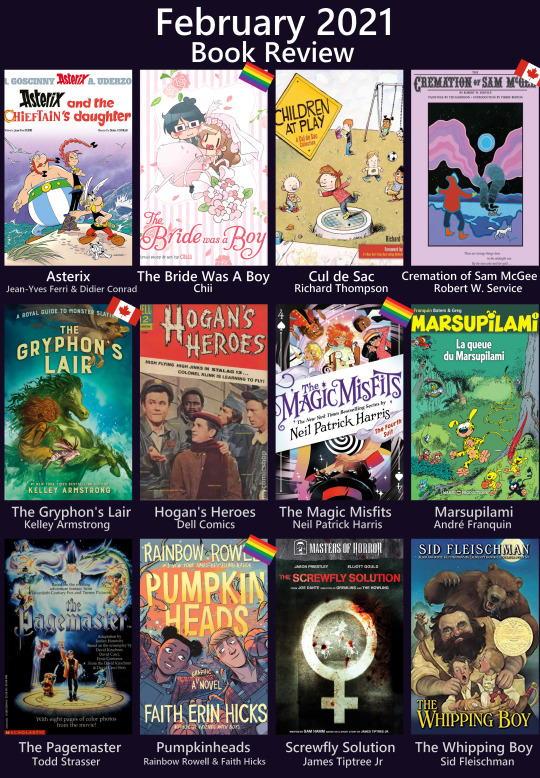
I read more books this month than I anticipated. I should probably wait before doing a February book round up, but I already feel like I’m struggling to decide which ones to cut from my list so I’m doing it this weekend instead of next. If I read much next week I’ll bump ‘em up into March’s round up
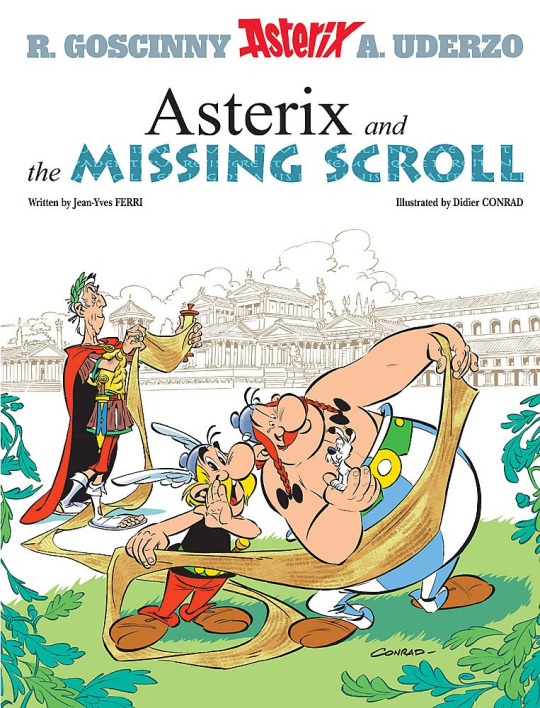
Asterix and the Missing Scroll / Chieftain’s Daughter
I got the last two “new” Asterix books out of the library so I could officially say I had read them all. Over all my opinion is… they’re fine! None of these would ever become one of my favourites, but they’re all fine stories. The art is good, it is completely in-line with the original, and the stories are… fine. I liked The Missing Scroll quite a bit more than The Chieftain’s Daughter but I never find a ~hurr hurr teenagers~ plotline that interesting, whereas I do enjoy seeing Romans get chased down by unicorns so that’s probably not surprising. There’s some spark I can’t put my finger on that the new Asterix books just seem to be missing though… a bit of humour or cleverness or something. Still, they’re fine reads if you’ve been hungry for more Asterix and I’m glad I read them. (Though the library gave me the American translation of The Chieftain’s Daughter, something I didn’t realize until I started reading and realized that this is wrong??? I’ve been reading these books since I could read and I know this is wrong??? What the hell is happening??? The I realized the publisher was different and I simmered in fury the whole time I read it — WHY ARE YOU CHANGING NAMES AND WORD CHOICES IN A WELL ESTABLISHED SERIES THAT ALREADY HAS AN ENGLISH TRANSLATION YOU ANIMALS WHY ARE YOU DUMBING DOWN THE LANGUAGE AAAUGH
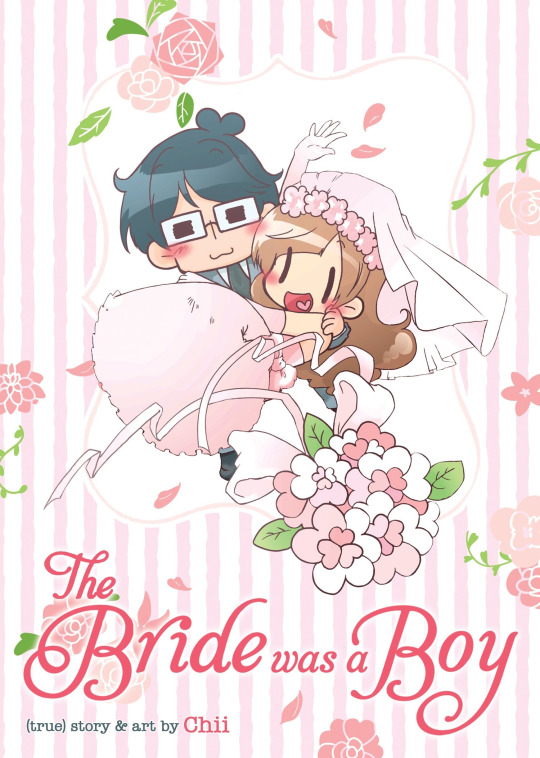
The Bride Was A Boy
This one was cute! The Bride Was A Boy is an autobiographical manga written by a transwoman recounting her experience with transitioning, meeting her boyfriend, and eventually getting married. It’s mostly done in a 4-panel style and is interspersed with lots of information about the LGBT community, particularly in Japan. A lot of it was stuff I was already familiar with, but I still found it adorable and a very worthwhile read. it would be a fantastic book for young queer people who are looking for more of an introduction into international queer space
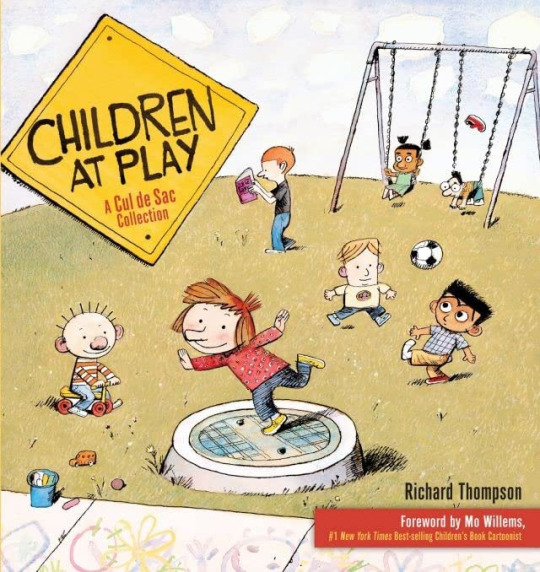
Cul de Sac: Children At Play
Cul de Sac is just a weird, fun newspaper comic series about the children who live in a small neighbourhood. It fully taps into the children-as-semi-feral-chaos-agents, and there’s something hilariously nostalgic about the whole thing. Lots of times when stories try to portray children there’s always something… wrong about it, something that doesn’t mesh with true childhood, but in this comic I can see glimpses of my grimy, dirty-covered self as a preschooler running around the pages. I would definitely recommend trying them!
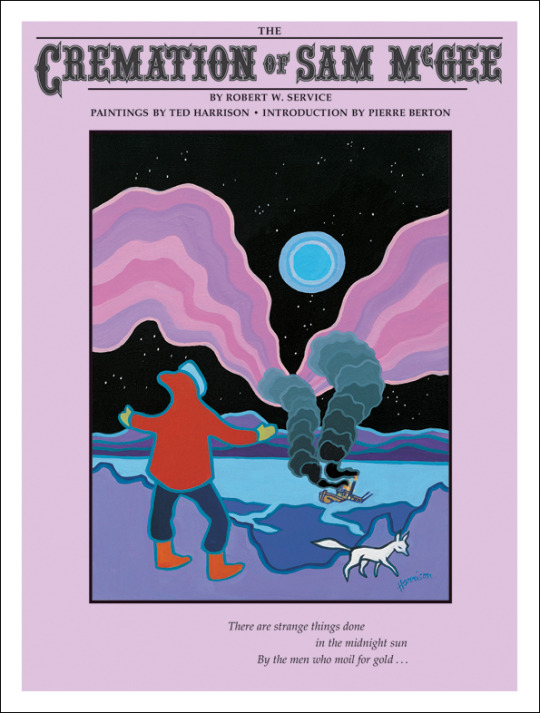
The Cremation of Sam McGee
I reread The Cremation of Sam McGee and The Shooting of Dan McGrew and man, they don’t stop being buckwild. These are two really famous Canadian poems that were then illustrated by equally famous Canadian artist Ted Harrison. Harrison’s style is gorgeous and distinct and given what strangely grisly stories these poems are they fit the mood perfectly. Everything feels just a little tilted and wrong and unsettling. If you enjoy an occasional poem (especially ones that are super fun to read out loud) and haven’t read these before, I would recommend them! Or do what my teachers did, and read Sam Gee to a young child in your life and watch them be baffled and concerned and horrified.
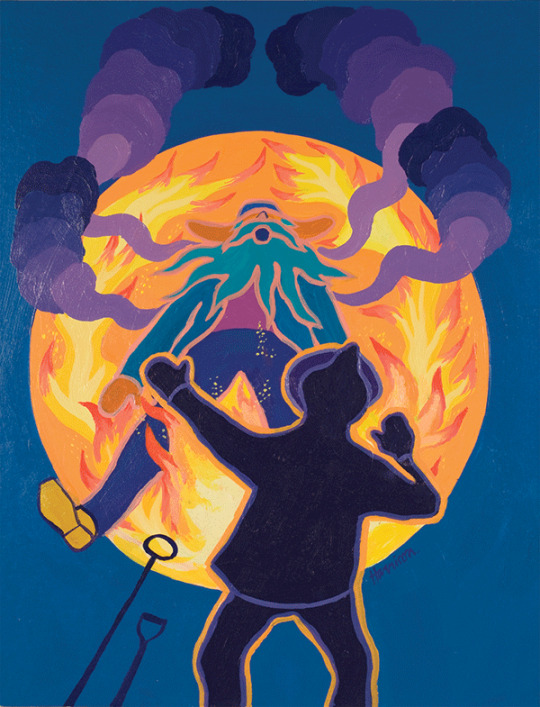
There are strange things done / in the midnight sun / by the men who moil for gold...
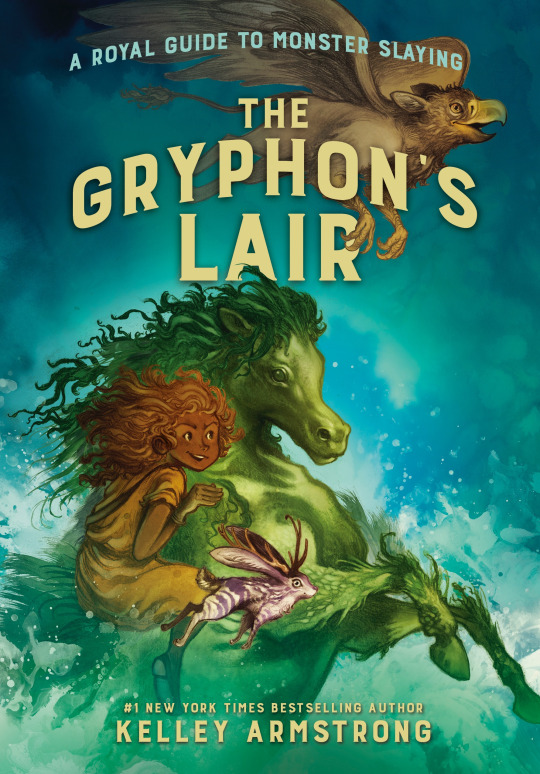
The Gryphon’s Lair
The second book of the Royal Guide to Monster Slaying series written by Kelley Armstrong; I’ve been eagerly awaiting this book! It’s a very cool fantasy series because it really leans into environmental stewardship and the importance of studying animals and conservation so you can find ways to live alongside a healthy ecosystem. In this book Rowan is officially accepted as the Royal Monster Hunter, which means a whole new set of trials and burdens. She has to contend with a baby gryphon that is becoming increasingly large and dangerous, plotting family members, doubt about her abilities, a potential curse, and a daunting quest deep into the mountains in order to set things right. If you’re looking for some very gentle high fantasy, this series delivers.
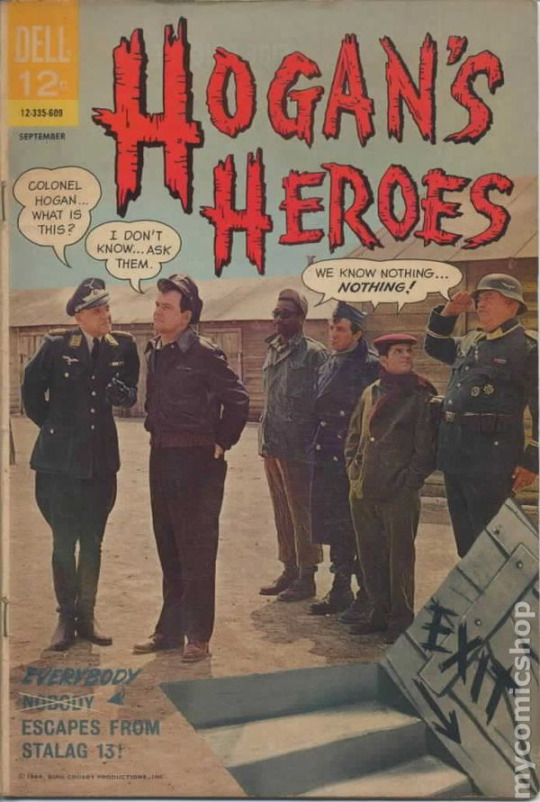
Hogan’s Heroes comics
What to say here. Anyone following this blog has suffered the knowledge that I’ve been rewatching Hogan’s Heroes lately. When I found out that there was a short-lived, shitty comic series in the 60s? Of course I had to hunt them down. And so I’ve read them! And they sure were a shitty comic series from the 60s! They were, shall we say, of wildly varying quality. Some were actually really funny (like #5, it easily had the best art and best jokes imho), others were a slog, and most were fine and amusing enough to read the whole way through but not much more.
If you don’t know what Hogan’s Heroes is about: it was a 1960s sitcom that took place in a WWII POW camp, in which the Allied prisoners trapped there had a massive, complex sabotage/spy ring right underneath the camp. The whole show is about constantly outwitting the bumbling Germans while keeping up the pretense that they’re all just normal prisoners. The show is hilariously funny and I would recommend that, even if I can’t say the same for the comics unless you’re like me and are just really thirsty for more content...
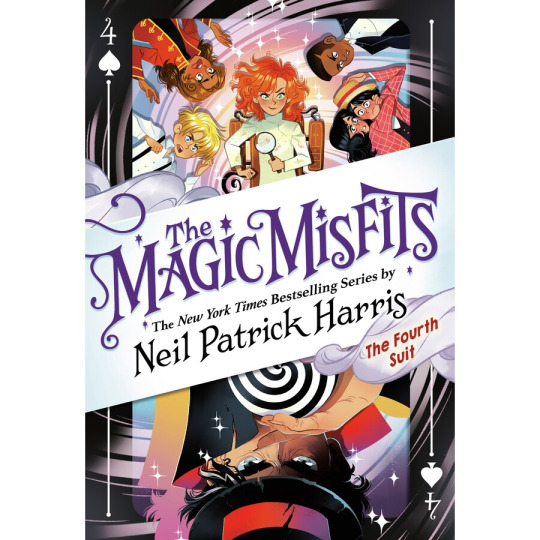
Magic Misfits: The Fourth Suit (Ripley)
The final book of Neil Patrick Harris’ middle grade series, The Magic Misfits. In this fourth book, the group is fragmented and forced to meet in secret to avoid notice from the mysterious and powerful Kalagan whose cruel machinations have already turned the quiet little town on its ears, putting people’s lives in peril and destroy Leila’s fathers’ magic shop. The Misfits are going to need all their skills to finally unmask this sinister magician and break the mesmerism he seems to have placed over the entire town before it’s too late to save no only the town, but their friendship and trust.
Super charming series, and the illustrations are gorgeous.
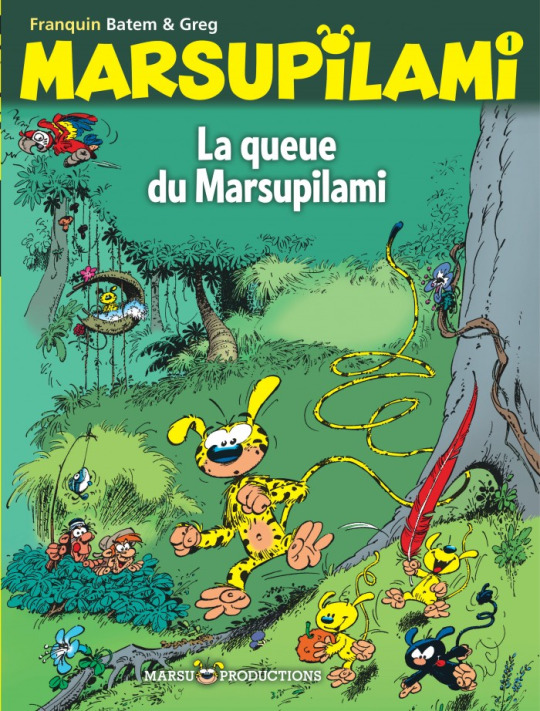
Marsupilami
HOUBA! I watched a very bad TV adaptation of this as a kid that still managed to find a place in my heart, and so I decided to finally try reading some of the original comic! On one hand: it was exactly what I had hoped! The art is cute, the marsupilami is so dynamic and fun to see on the page (and has a way better characterization than he does in the show), and it’s really funny! Unfortunately! It is also pretty racist! Yikes! That seems to be a reoccuring downfall for some of these older Belgian comics... I also tried reading the first book of Les Tuniques Bleues and aye ye ye… I couldn’t actually get through that one. That being said, these were older volumes and frankly, North American media was also real fucking racist at that point so I’m not gonna write them off either. I really liked most of this book, and will probably try to get my hands on one of the more recent volumes of both Marsupilami and Les Tuniques Bleues to see if they get better with time. (If you’ve read either of those series and have volume recommendations hmu)

The Pagemaster
I’m a sucker for novelizations, I have no excuse beyond that. I recently rewatched The Pagemaster and decided to read the chapter book. And it was a solid little adaptation! It’s about Richard Tyler, a young boy with a head for statistics which unfortunately means he lives in constant fear of (in his opinion, statistically likely) injury or death. However that fear is put to the test when he gets caught in a horrible thunderstorm and has to shelter in a nearby library with halls and shelves that stretch beyond the imagination and with untold perils hidden among the pages of the books. Richard, with only his library card and three novels that hope to be checked out, has to venture through the different genres and horrors housed int he library if he ever wants to find the exit and get home to safety.
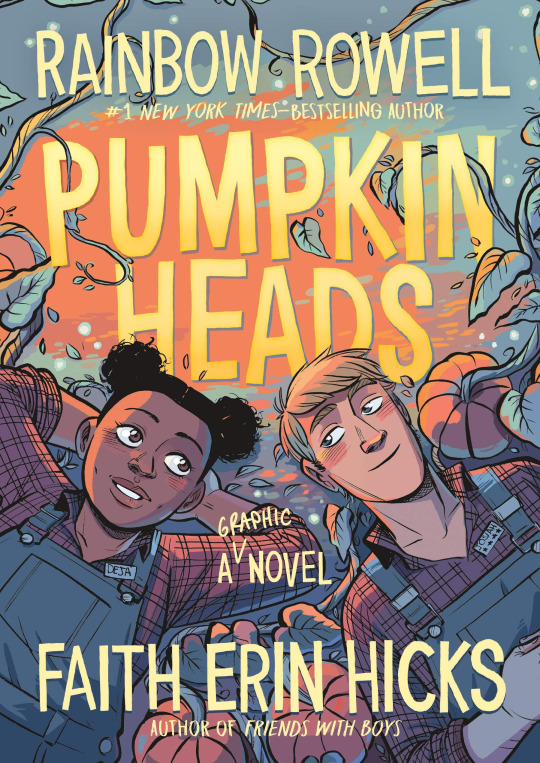
Pumpkinheads
A very charming little graphic novel. Cute art, and really loveable characters. Josiah and Deja work every year at a local pumpkin patch, and are best friends during those weeks. However this is their last year working there before going off to university and as the last day at the patch comes to a close they realize that they both still have regrets. Deja sets off on a mission to avoid work, eat all the interesting snacks around the patch, and get Josiah to find the girl he’s been crushing on every year and has never worked up the nerve to talk to.
After being deprived of human contact for almost a year, this book really hits you right in the heart.
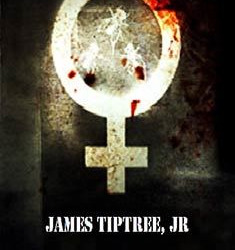
The Screwfly Solution
A deeply upsetting scifi/horror short story! I read it on the recommendation of a friend and, yes, can confirm that this fucked me up a bit. I honestly don’t even know what to say about this that wouldn’t spoil it, but frankly with everything being as it is, this hit a little bit too close to reality. (That being said, it was very well written, like this is a very good story on a literary level and it does exactly what it sets out to accomplish.) If you feel like reading twenty pages and being really disturbed, give it a go! Otherwise go and read any number of the much happier books on this list!
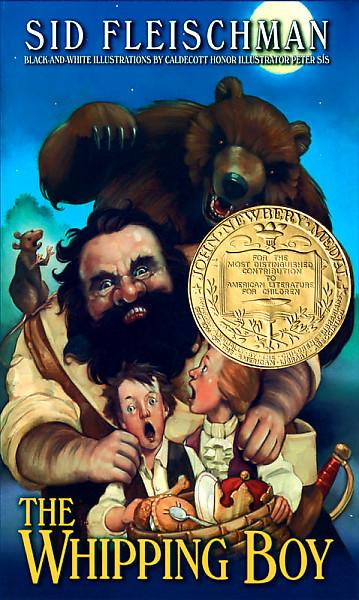
The Whipping Boy
This was a book I remember reading as a lit circle book back in elementary school and really loving. After telling myself I’d reread it for years, I finally sat down with it again. If you somehow got through school without reading this one, it’s about a brat of a prince and his whipping boy — since it would be unspeakable to strike a prince, when the prince misbehaves it is Jemmy who gets whipped. Unsurprisingly, there is no love lost between the two of them, because the prince is always intentionally causing problems that Jemmy has to suffer for. Things begin to change though when the prince decides to run away and drags Jemmy along with him. On the run, being chased by highwaymen, and desperately trying to hide their identities, these boys go on a fast-paced adventure beyond the castle walls. It wasn’t as special as I remembered it being as a kid, but it’s a fine little chapter book.
#book review#book reviews#canadian literature#canlit#queer lit#the boy was a bride#asterix#asterix and the missing scroll#asterix and the chieftain's daughter#neil patrick harris#magic misfits#the whipping boy#screwfly solution#pumpkinheads#marsupilami#hogan's heroes#dell comics#pagemaster#kelley armstrong#a royal guide to monster slaying#the gryphon's lair#ted harrison#the cremation of sam mcgee#chatter
36 notes
·
View notes
Link
Need something to break you out of the winter/pandemic blues? Thankfully, Hudson & Rex returns on Tuesday, January 5 at 8/7c to Citytv for its third season. In Season 3, Detective Charlie Hudson (John Reardon) and Rex, his intrepid German Shepherd partner, are back on the trail of St. John’s most devious criminals. Season 3’s caseload promises to present the Major Crimes team with some of their biggest mysteries yet. Charlie and Rex will need every member of the team, including Dr. Sarah Truong (Mayko Nguyen), Charlie’s closest collaborator, by their side.
Sarah is always lockstep with Charlie when it comes to solving cases, and their friendship grows even closer in Tuesday night’s season premiere. In it, Charlie brings Sarah along to a trip the past that details how his partnership with Rex began. Nguyen recently spoke with The TV Junkies about what Charlie’s gesture means to Sarah, as well as what lies ahead for Sarah this season. She also previews some great guest stars, including one that offers up a mini-Killjoys reunion for fans of the dearly departed sci-fi drama. Nguyen played Delle Seyah Kendry during Killjoys’ five-season run and looks back upon that experience with us as well.
The TV Junkies: What’s it like coming back for Season 3, especially when you had to film in such unprecedented times?
Mayko Nguyen: When all of this started going down in March, I just assumed that the entire film industry would shut down for a year. So to be honest, I just feel very lucky and grateful to still have work and get to be together in a room full of people. We were socially distanced and with masks, but I feel so fortunate to be with this family again. It’s been a nice mental break from COVID.
TTVJ: This is also your third season coming back and shooting in St. John’s. Has it really become like a second home? What do you love about being there?
MN: I’ll let you in on a secret, I’m someone that really likes to be in my home. I’ll go away but for a max of like three weeks. Particularly in the first season, I found it really hard to be out here for 16 episodes and six to seven months. The turnaround is quick so we don’t end up being home very long. The second season I got a bit more acclimated to being here, but now, we came in July and the weather was particularly glorious. There’s something that happened this season where it’s really become my second home. Having a new baby and a toddler out here is just so much easier and makes so much more sense.
TTVJ: From the screeners I saw, Sarah seems more confident than ever in her abilities. What’s her mindset like in Season 3 and what were you most looking forward to exploring with her?
MN: Not a ton has changed with Sarah. Year by year the group gets more and more cohesive, and coming from COVID and getting to be together again has been really nice. I think that translates to the show. The four of us become tighter and tighter each year. In terms of Sarah, her work is her life and there’s more references to that this season. She’s pretty reliable and consistent. You know what to expect with her. There’s always stuff happening with her and Charlie here and there. Those are the fun surprises but I can’t talk too much about that. [laughs]
TTVJ: A big part of the season premiere is that Charlie brings Sarah along on a trip to the past, chronicling how his partnership with Rex began. What’s that mean to her to be a part of that?
MN: I loved that episode and it’s quite a departure from how our episodes are typically structured. It felt really special and fun to be outside of the group. Sarah is the newer member to the department and this is a story close to Charlie’s heart. It’s all about how he and Rex started and developed their relationship. In the episode, I’m asked to join this annual tradition and Sarah feels incredibly honored to be a part of that. It further cements her feeling of being a part of the team and not so new anymore. It also makes her feel close to Charlie and their friendship is quite strong.
TTVJ: Hudson & Rex always seems to pull in some pretty fantastic guest stars. Are there any in particular that you’re excited for viewers to see?
MN: In the second episode of the season we have Allan Hawco from Republic of Doyle. I have a favorite, and I don’t think she even knows it, but it’s Cara Ricketts (Anne with an E, Street Legal). She’s on this season and so is Sarah Podemski. I really enjoyed her as well. We’ve had a bunch of really great people.
TTVJ: Because I’m a huge Killjoys fan, I loved that in the second episode of this season there’s a mini-reunion that happens when Gavin Fox, who played Gared, guest stars.
MN: Oh my gosh yes! We were so happy that we actually got to work together. I often don’t have much with the guest stars but we got to share scenes. He’s this big, imposing guy but is just a pure teddy bear. He’s so respectful, lovely, and warm. Just a lovely, lovely person.
TTVJ: Speaking of Killjoys, I wouldn’t be who I am as a person if I didn’t ask you about one of my all-time favorite characters, Delle Seyah. Now that you’ve had some time away from her, what do you think about as you look back to that experience and playing such a dynamic character?
MN: It’s interesting because I’ve found that it’s unfortunate actually because you get so caught up in the work when you’re in it. Of course you’re grateful for it and enjoying yourself, but it is also work. I went in and out of having challenges with her, in terms of keeping her based in reality, but then when you leave a show like that you just miss it. I almost feel like I didn’t appreciate how incredible that experience was when I was in it. I’m someone who broods over my work and has a hard time enjoying things. I always reflect back after the fact when it’s too late. I should’ve taken more time to really enjoy that experience and the people.
She was a really great character, and I had no idea when I set out to play her that she’d have the arc that she had. When you’re in it you’re just trying to do good work, and you’re anxious because you have no idea if what you’re doing is going to translate. To be honest, I don’t watch my stuff and I often questioned my choices as Delle Seyah. It’s not until hearing that people liked her and enjoyed that arc that it felt satisfying to me. I definitely miss her, and wish I had allowed myself to enjoy that experience more while I was in it, and not after the fact.
TTVJ: I was always so afraid she was going to be killed off, and I never wanted to lose her!
MN: She came close, right? Michelle Lovretta [Killys creator] is just so great, as is her writing and what she can do. When I got pregnant I just assumed that I was going to be done. The fact that they not only kept me in, but incorporated the pregnancy into the storyline, allowed it to go so far. She’s just incredible.
TTVJ: What do you think the Green Queens would be up to now?
MN: I feel like not too much. After all of that they’d just be arm and arm and lounging. [laughs]
Hudson & Rex Season 3 premieres Tuesday, January 5 at 8/7c on Citytv.
10 notes
·
View notes
Text
Astro Scales: the breakdown by sign
In our first post, we introduced the Astro Scales system and discussed each element’s heart and head values. In this post, we will further break down each element into its three signs, and explain what distinguishes the signs from one another.
The Astro Scales system derives its name from a pair of scales, where we envision head and heart values being weighed against each other. Some signs weigh the head value above the heart value, some weigh the heart value above the head value, and some place an equal weight on both values, balancing the scales.
For example, while all fire signs struggle with the primary conflict of now vs. later, we argue that the charging ram Aries weighs now, the fire heart value, above the head value of later. By contrast, the archer Sagittarius believes in the value of biding their time, despite the draw of fulfilling their desires immediately; thus Sagittarius weighs head over heart. Meanwhile, proud Leo, king of the jungle, constantly balances immediate reward against delayed gratification.
We observe these 3 configurations of the scales (heart over head, balancing both, head over heart) in all 4 elements, giving each of the 12 zodiac signs its own distinctive character.
***
Fire signs (now vs. later)
Aries: now
The first sign in the zodiac, Aries the ram bursts into existence with an uncontainable life force, as if to announce to the world, “I am here.” It’s therefore no surprise that Aries leads with the heart value of now over the head value of later. Although Aries understands on some level that waiting can lead to greater rewards, the cost of forgoing the immediate rush of instant gratification is often too high for this impatient sign. More so than any other fire sign, Aries embodies the action principle of fire: a flame’s existence depends on a continued fuel source, or it will be extinguished. Thus it is important for Aries to feel a sense of forward momentum with all of their actions, and stasis is very uncomfortable for them. Aries may feel anxiety about not getting what they have set their minds to and if they cannot follow through with their plans, they can feel lost and unlike themselves. It’s instinctual for Aries to prioritize the desires of their heart above the head. This means that while Aries is very good at making decisive moves to instigate the outcome they desire, others can feel steamrolled or ignored in Aries’ hasty actions.
Leo: balancing both
Ruled by the Sun, Leo is a sign that flourishes when it’s in the spotlight. Leos are generous with their warmth and their love; being around them can feel like basking in warm sunshine. Leos shine brightest when surrounded by other people, and their need for continuous attention from others explains why Leos balance the heart value of now against the head value of later. For Leo, balancing these values means pursuing all of their immediate desires, while making concessions so as not to lose their audience. The lion is the king of the jungle, and like all kings, Leo walks a fine line between luxuriating in all the perks of being at the top, yet always being aware of the precariousness of their position. There is always someone next in line, waiting to usurp a king who shows weakness or loses the support of his followers, and proud Leo feels keenly the cold shadow that descends upon them when the spotlight is turned on someone else. For this reason, it is rare to see two Leos in one group of friends. Though people are quick to characterize Leos as overconfident and self-absorbed, these traits can be attributed to this sign’s tendency towards idealism and a general wholehearted optimism for life.
Sagittarius: later
Although Sagittarians may be known for their impulsivity, a second look at this sign reveals a surprising willingness to bide their time. Note that of all the fire signs, Sagittarius is the only one represented not by an animal, but by the archetype of the archer -- the hunter, who must lie in wait for the perfect moment to strike, reflecting how Sagittarius weighs their head value of later over their heart value of now. Another aspect of the Sagittarian mythology involves the figure of the centaur, a half-human, half-horse. While Sagittarius may feel the primal urge of now from beneath its hooves, its higher faculties are able to temper these urges. Ruled by Jupiter, the planet of luck and expansion, Sagittarius is willing to take a gamble on waiting until later in the hope of reaping greater rewards. Sagittarius feels most like themselves when they have the freedom to explore various options and are able to escape when life gets too restrictive. These tendencies result in the endless optimism and adaptability Sagittarians bring to all of life’s ups and downs, but can also result in an impression of flightiness and unreliability.
***
Water signs (feeling vs. fantasy)
Scorpio: feeling
Of the three water signs, Scorpio alone is represented by a non-water-dwelling animal. Compared to the dark, nurturing ocean depths where Cancer and Pisces live, the harsh, flat desert where the scorpion dwells contains few hiding places; here, everyone is stripped bare. Similarly, this sign favors the heart value of raw feeling over the head value of fantasy, which they see as a watery world of self delusions and concealments. Even as they are drawn to the boundless promise of the mystical and fantastic, Scorpio accepts that they live in the physical world and must adapt to its harshness rather than seeking escape in dreams. Scorpios feel things intensely, and they have a hard time hiding or masking their emotions, seeming even to revel in the darker side of their nature. Since they see the world and other people with clear eyes, without the veneer of idealism, they find trust and vulnerability difficult. Scorpio’s combination of intensity and penetrative perception gives them a magnetic quality, which can be attractive to many. But when tangling with this guarded sign, know that physical passions do not necessarily translate into emotional intimacy.
Cancer: balancing both
Cancer the crab walks between the watery world of fantasy and the earthly sands of real sensation. Though they are often stereotyped as sensitive and moody, this reputation stems from the tug-of-war between Cancer’s heart value of feeling and head value of fantasy. Far from being mutually exclusive, this sign’s heart and head values often feed into and build upon each other. For a Cancer, real-life feelings are heightened by their fantastical imaginings, while their fantasies are imbued with real attachment. For example, in everyday conflicts, it comes naturally for Cancer to cast others in the roles of hero and villain. Conversely, this sign’s romantic daydreams can replicate or even surpass the giddy euphoria of actually falling in love. Because Cancers attach equal weight to their fantasies and their lived emotions, it can be extremely painful and disappointing for this sign when experiences don’t live up to the expectations set by fantasies; this is when Cancer may retreat without warning behind a spiky exterior. However, a person who is able to coax this sign out of their shell will find a uniquely soft and nurturing nature: a Cancer’s affection is given wholeheartedly and without reserve.
Pisces: fantasy
Pisces the fish lives entirely submerged in the ocean depths of fantasy, so much so that Pisceans often seem to inhabit their own plane of existence. With this sign of dreams, the subconscious, and the spiritual, the head value of fantasy comes so naturally that they may have difficulty separating fantasy from their emotional reality. For Pisces, fantasy involves a predisposition towards creating deeper meaning from the apparent randomness and chaos of life. This may morph into existential dread if Pisces begins to consider the possibility that reality is actually random and devoid of meaning. Everyday, practical matters tend to fade into the background in the face of these looming existential questions, which may contribute to this sign’s “head in the clouds” reputation. While Pisces, like other water signs, is highly emotionally attuned, their fixation on fantasy can make it difficult for this sign to express or indeed, truly experience their immediate feelings. This results in Pisces’ susceptibility to absorbing the feeling currents of others around them, as well as their reputation for empathy and sensitivity. A Pisces who is too detached from the truth of their own feelings can become oversensitive and withdrawn.
***
Earth signs (conviction vs. compromise)
Taurus: conviction
Famously stubborn, Taurus’s stability comes from their firm heart value of conviction, which they weigh over the head value of compromise. Because Taurus’s sense of identity is so grounded in their personal convictions, being confronted with the necessity of compromise can feel like an affront to Taurus’s self-image. This is why Taurus, more than any other sign, is known to fear change despite recognizing the importance of growth -- after all, compromise by definition requires us to leave our comfort zone in some way. Like the immovable bull, Taurus prefers to stick to what they know and trust, not only in their beliefs but also in their habits and environments. While they are aware, as all earth signs are, that there are times when we must prioritize practicality and/or the common good, it costs more comparatively for a Taurus to repress their innermost beliefs. Although this sign may come across as stubborn and obstinate at times, others know that they can trust Taurus to be honest and reliable.
Virgo: balancing both
The maiden associated with Virgo embodies purity of course, but also carries a sheaf of wheat, representing the harvest. These two symbols encapsulate Virgo’s balancing act between their heart value of conviction and their head value of compromise: while it is important for Virgo to uphold the purity and clarity of their personal convictions, this service-oriented sign may not always find it necessary or appropriate to impress these convictions upon others. The harvest is emblematic of humans’ interdependence with each other and with nature; Virgo’s approach to compromise follows a similar principle of being conscious of how your actions affect others. They are careful not to be offensive or take up too much space, and tend to disdain those who act rudely or thoughtlessly. Balancing conviction and compromise can be a struggle for Virgos, who feel they must remain true to themselves even as they wish to avoid making a fuss. This may account for some of this overanalytical sign’s tendency towards anxiety and neurosis. Virgos treat each word and action they put into the universe with extreme care, but even so, they may stay up late at night regretting their decisions.
Capricorn: compromise
Even as the mountain goat Capricorn steadily ascends the mountain, it never loses sight of its grounded perspective. Capricorns weigh their head value above their heart value; although they have as strong a sense of their convictions as other earth signs, it is unlikely that a Capricorn will allow these private convictions to interfere with their ability to compromise. Compared to other earth signs, Capricorns tend to come across as more patient when dealing with people because they try to accommodate everyone’s differences in order to move forward. Another way to understand this value could be “compartmentalization,” something that comes naturally to this sign. Some may call Capricorns cold because of their ability to put distance between their actions and their personal feelings/allegiances; they would simply call themselves realistic. Compromise serves most Capricorns well -- in the long term, they will be able to build respect, recognition and a reputation of dependability in the eyes of others.
***
Air signs (knowledge vs. faith)
Aquarius: knowledge
Ruled by Uranus, the planet of revolution and rebellion, Aquarius the water bearer is characterized by independence, originality and humanitarianism. Aquarians are not known to be followers; their determination to walk their own path emerges from their heart value of knowledge, which they prioritize over the head value of faith. If you want to recruit Aquarius to your cause or way of thinking, you’d better be prepared to explain every step of your logic. For Aquarius, blindly following a belief that is not their own feels like a betrayal of the principle to seek truth. Even if an Aquarius hasn’t yet developed their own perspective on a subject, they are eager to pick holes in someone else’s viewpoint in order to better understand the other person’s logic. Since Aquarians tend to forget that most people’s beliefs include emotion as well as logic, this sign runs the risk of coming across as cold or unemotional. Yet it is equally common for Aquarians to attract those who admire their unique perspective.
Libra: balancing both
Portrayed as a pair of scales, it comes as no surprise that Libra is the air sign that balances the heart and head values of knowledge and faith. The heart value of knowledge gives Libra a clear view of their own beliefs, though they are unlikely to offer these opinions unless pressed or in the company of someone they fully trust. This is because Libra wishes to avoid conflict and maintain a sense of equilibrium in most situations, and it comes naturally to this sign to reflect other people’s opinions back at them, telling others what they most want to hear. Libras are seen by some as indecisive or “fake” because their behavior can change depending on their company. However, this is not to say that Libras are simply humoring the other party; they believe that each person has their own truth that they live by and they are willing to reconcile disparate opinions with their own, especially when faced with an emotionally charged appeal. In this way, this harmony-seeking sign can manage knowledge and faith simultaneously without sacrificing either; the result is Libra’s distinctive charm and agreeable nature.
Gemini: faith
Gemini’s ruler Mercury is the fastest-moving planet in our solar system. Accordingly, Gemini, the mercurial twins of the zodiac, always thinks a million thoughts at once. Their talkative, loud exterior tends to mask their propensity to overanalyze and doubt their own logical flow. Gemini weighs their head value of faith over the heart value of knowledge: it is often easier for a Gemini to take someone else’s words as truth rather than stick to their own knowledge, unless the other person’s opinions strongly contradict systems that they already know to be correct. Although Gemini is much maligned for the stereotype of being “two-faced,” this sign isn’t being consciously duplicitous; they are simply so faith-oriented that it is difficult for them to maintain their former beliefs in the face of someone else’s forceful opinions. A Gemini’s fluid, fast-paced thought process can accommodate many different and conflicting truths in rapid succession -- to arrive at a single, final truth is the real challenge for this sign. For Gemini, knowledge seems less like a stable destination and more like a never-ending journey of considering each possibility and perspective.
***
Thanks for reading! xxx fon & bells
p.s. Our ask box is now open!
136 notes
·
View notes
Text
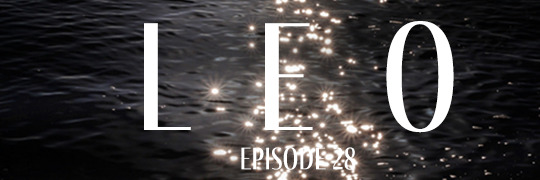
Name: Leo
Writing Blog URL(s): @hereisleo
What fandom(s) do you write for?: I write for ATEEZ, VICTON and ONEUS.
Age: ‘99 liner
Nationality: Indonesian
Languages: Indonesian, English, Japanese and a sprinkle of Korean.
Star Sign: Leo
MBTI: INFP-A
Favorite color: Neutral but mostly black! (Other than neutral colours, I’m partial to blue, dark green and red).
Favorite food: Indonesian and Japanese cuisine! The taste of home!
Favorite movie: Resident Evil franchise.
Favorite ice cream flavor: Vanilla.
Favorite animal: Owl ever since I was a small child.
Go-to karaoke song: None. I don’t enjoy karaoke.
Coffee or tea? What are you ordering?
Both! Recently, I’ve been ordering black coffee again whenever I stop by a cafe.
Dream job (whether you have a job or not)
I’m interested in a lot of fields of work, it used to be Red Cross worker, paramedic and flight attendant. Now it’s barista-bartender. It’ll likely change in the future too.
If you could have one superpower, what would you choose?
Teleportation, let’s travel the world!
If you could visit a historical era, which would you choose?
The Golden Age of Piracy! I want to sail! And such freedom to spite against governmental standards.
If you could restart your life, knowing what you do now, would you?
Without a doubt, yes. I’m always down for changes and new adventures.
Would you rather fight 100 chicken-sized horses or one horse-sized chicken?
Holy moly… 100 chicken-sized horses...
If you were a trope in a teen high school movie, what would you have been?
The quiet smarty one at the back of the class. Common? Yes. But it’s true.
Do you believe in aliens/supernatural creatures?
This universe is too big to be only occupied by humans.
Fun fact about yourself that not everyone would know?
Badminton is my favourite sport!
When did you post your first piece?
June 2019!
Why did you decide to write for Tumblr?
I always love writing so I wanted to share my creations and see how they fare in the world instead of keeping them for myself.
Do you write fluff/angst/crack/general/smut, combo, etc? Why?
I mostly write platonic relationships, fluff, slice of life, romance, comfort and a lot of AUs. It’s what I’m comfortable with and thrive in best! I do enjoy writing mystery, crime/murder and angst once in a while. Gotta let the dark side out too.
Do you write OCs, X Readers, Ships...etc?
Usually, it’s either member centric and or ‘X reader/ + Reader’, it’s not always romance when reader insert is involved :)
What genres/AUs do you enjoy writing the most?
Definitely friendship and slice of life! AU wise, I’m a sucker for the supernatural side: demons, angels, mythical creatures and mythology, they are all right up my alley. I also enjoyed writing crime AU and anything dark, nothing like unleashing the inner criminal legally through words… and occasionally being questioned, “What’s going on in that head of yours?”
What tropes do you love, and what tropes can’t you stand?
Tropes I love, I’m a sucker for friendship/platonic, slow-burn enemies to lovers, the cafe/bar occupation, single parent, the demon is suddenly your guardian angel, the breakup and the crime syndicate dynamics. Tropes I can’t stand on the other hand aren’t much, I don't actively read a/b/o dynamics, Hogwarts, hybrids and werewolf/vampire. It’s mostly AUs now that I listed them.
What is your favorite work and why? Your most successful?
Oh this is tough. I think it would have to be ATEEZ: ‘Supernatural Activities’ series. I’m proud of how ‘Dante’s Inferno’ & ‘Angels in the Streets’ turned out and they are well received too.
Who is your favorite person to write about?
Song Mingi of ATEEZ. Somehow writing about him always seems personal. Maybe it’s the similarities we carry. It seems like a lot of the time, the bias is the one who is most similar to us.
What inspires you to write?
Simply the need to escape reality and it’s an outlet to expel excess emotions I carry sometimes. All is well in the mind after I write and sleep.
What do you hope your readers take away from your work?
I hope it provides you an escape for a brief moment, I hope it makes you happy. I hope you could enjoy the world with a touch more romanticism, we are all a part of the aesthetic we see in the media and more. Sure it’s a tough world but there are good in it too.
What do you do when you hit a rough spot creatively?
I take a break. It’s no use for me to push on when I hit a rough patch. I’ll read and do everything else except writing. It rarely happens as I’m constantly full of ideas, it’s the lack of motivation that keeps me from creating.
What do you think makes a good story?
To be honest, if I enjoyed it, it’s good. I’m a simple person with simple pleasures.
What is your writing process like?
Messy 😂 There’s no getting around it. I would rewrite a paragraph three times if I don’t like it, delete a thousand words, scrap a different story to incorporate it into another. I don’t always start from the beginning either. A writing piece could take anywhere within several minutes, a few hours to days, weeks and months. It all depends on my motivation and how busy work is keeping me from writing. (Psst, it’s mostly the former).
Do you think there’s a difference between writing fanfiction vs. completely original prose?
Yes. Writing in the fanfiction world, more often than not, we are already given much of the relationship dynamics and setting. (Unless it’s AU then that's a whole different animal, it might as well be an original prose). In original prose, we have to weave most, if not all, of the world and characters building… I hope I understood the question right...
Would you ever repurpose a fic into a completely original story?
Maybe. It’s usually the other way around. I have thoughts to repurpose an abandoned original story for a fic series. Highly unlikely that I’ll actually do it.
How much would you say audience feedback/engagement means to you?
A lot! Please! It’s the biggest motivation for us content creators to keep creating! You have no idea how fast my hand reaches for my phone every time tumblr notifications pop up, hoping for a reblog and comments in the tags.
What has been one of the biggest factors of your success (of any size)?
My mutuals reblogging my works. They’re exposed to new eyes and the readers, on the other hand, find a new blog.
Do you think fanfic writers get unfairly judged?
Yes. Fanfic writers are as important to the fandom community as the rest of the content creators are.
Do you think art can be a medium for change?
Absolutely. Art is a fantastic gateway to many things.
Do you ever feel there are times when you’re writing for others, rather than yourself?
Only when I decided to take requests which happens like once a year and maybe even less.
Do you ever feel like people have misunderstood you or your writing at times?
No, I don’t think so. No one has asked me to clarify any of my writings. One anon used to send me asks about world expansion and said anon turned into a dear friend.
Do your offline friends/loved ones know you write for Tumblr?
NOPE. DON'T LET THEM KNOW. I WON’T LET THEM KNOW. NEVER. Leave my virtual writing world be. *puts ‘do not cross’ yellow tape all over*
What is one thing you wish you could tell your followers?
Please leave me some feedback, even keyboard smashes are fine, I can translate those. Don’t be shy to leave me asks if you want to chat, ramble, or get something off your chest. This is a safe place for you, an escape from reality.
Do you have any advice for aspiring writers who might be too scared to put themselves out there?
Don’t be afraid. As hellish this platform is, it'll help you grow in the writing department. I know this is not the best advice but you have to try to see the result.
Are there any times when you regret joining Tumblr?
I don’t think so. There were moments of “Why do I even bother?” but it happens and will happen again in the future but no regrets.
Do you have any mutuals who have been particularly formative/supportive in your Tumblr journey?
I do! Most of the ones who were there from the beginning aren’t there anymore but it’s alright. Their lives outside of Tumblr are always more important than anything else. I don’t have to heart to unfollow their pages. My current handful of mutuals are an amazing bunch too! The sheer talent and creativity they possessed are out of this world. I love seeing their posts outside of the writing world, their personalities shine through and my heart feels fuzzy whenever I see it. Though I don’t interact often with most of them, I adore them all and consider them good friends.
Pick a quote to end your interview with:
Since we, writers, create in order to find escape and or brush up our skills or simply for the sake of creating. As we broaden our skill sets, “Necessity is the mother of invention. Failure is the mother of success.” Common, I know, but it’s comforting to know that failure can be a motivation to do better. Don’t stay down, always rise again.
BONUS: K-POP CONFIDENTIAL
8 notes
·
View notes
Text
Lore Olympus Novelized, Chapter 2
First Chapter
I decided to combine chapters 2 and 3 since they basically flow into each other anyway. Plus, we get to the action faster :)
For the most part, I will be sticking pretty heavily to the source material in this little writing exercise. However, I may change a few minor things to better suit a prose retelling of the story, like maybe adding small actions/gestures or tweaking a bit of dialogue here and there. Hope you enjoy!
----------------------------------------------------
“I don’t think I should have come to this party…” Persephone said through the stall door, tugging down the hem of the dress yet again. No matter how she adjusted her clothing, she couldn't find a way to make the darn thing stop riding up her butt.
Loaning Persephone an outfit had been a great idea on Artemis’ part since the two of them were pretty close to the same size. Well, close to the same size, with one important exception: Artemis was curvy, to be sure, but Persephone was curvy. She could breathe all right, that part was fine. However, it was obvious that the dress didn't fit the way it should. It was just one more thing to add to the teetering stack of worries she had built up on the drive over to the Panathenaea, her earlier optimism now shriveled up and gone.
She was going to make an embarrassment of herself, she just knew it.
“Come ooon." Artemis' voice echoed off of the sleek bathroom walls. "You look fantastic!”
Persephone attempted to smooth out the bunched-up fabric at her hips, wincing at the contrast of her calloused hands against the shimmering material. Even her fingernails looked unsophisticated, cut short and stubby so it would be easier to clean the dirt out from under them after working in the fields.
With a sigh, Persephone leaned forward and peered through the gap under the hinge. "I feel out of my depth...everyone’s going to think I’m some stupid village girl.”
“Nobody’s going to think that," Artemis said, unconcerned as she reached down to adjust the strap on her heels. "Come on, I don't want to talk to a bathroom stall all night."
Persephone cracked the door open and peeked at her cousin around the edge. "Artemis, I'm really nervous…"
"Awww, Persephone. You'll do fine. We'll stay under the radar." Her cousin sounded sincere enough, and Artemis didn't tend to attract too much attention to herself anyway.
Persephone poked her head out a little farther. "One drink and then we can go, right?"
"Promise." Artemis nodded.
One drink. That shouldn't take too long, she could handle that.
With a final steadying breath, Persephone smoothed out her borrowed dress, attempted something close to a smile, and ever so confidently said, "...Okay."
----------------------------------------------------
"One drink and then I can go, right?" Hades cast a sidelong glance at his youngest brother.
Zeus looked at him as if he had sprouted three other heads. “What? No, no, no, no! The festivities have just begun!”
The festivities had been underway for a good hour and a half, but Hades knew there would be no point in arguing with Zeus. He’d spared no expense this time around and was obviously proud of his work. The floor under their glassed-in suite was awash in all matter of nymphs, gods, and demi-gods, a sea of celebration roiling in time to swelling music. Aerialists drenched in technicolored light swung on swathes of silk above, while a vast variety of libations flowed without end among the cheering crowd below. Hell, it looked like people were even starting to crowd surf over in the far corner. It was, by all accounts, a damn good party.
Too bad Hades couldn’t find it in himself to enjoy it.
“What’s the problem?” Poseidon asked, handing Hades a glass of scotch. “Normally you would be drinking us under the table.”
“Oh, he’s got blue balls because some nymph dumped his sorry ass,” Zeus answered.
You little shit.
Hades rolled his eyes and set his drink on a side table without tasting its contents. “Can you please not talk about my balls? Or my ass, for that matter?”
“‘Can you please not talk about my balls? Or my ass for that matter?’” Zeus mimicked in his most morose tone, furrowing his eyebrows and pressing a dramatic hand to his chest. Then he shot Hades a shit-eating grin and pointed at him. “That’s what you sound like.”
Before Hades could decide if he wanted to bestow a response to his brother’s terrible impersonation, Poseidon twitched and stiffened as he looked down into the crowd.
“Zeus…” the Sea God said through gritted teeth, the faint outline of shimmering scales beginning to show through his skin, “...did you invite Odysseus?!”
“Of course!" The shit-eating grin on Zeus’ face took on a fiendish glint. "You know, Poseidon, you’re just too entertaining when you get mad.”
Not for the first time that night, Hades found himself wondering why they put up with His Royal Pain in the Ass. As the father of the blinded Polyphemus, Poseidon was still more than a little sore about Odysseus stabbing out the Cyclops’ only eye. Granted, the Cyclops had been trying to eat the King of Ithaca at the time, so Hades sided more with his great-great-grandnephew’s point of view over that of his nephew’s...point of view.
Poseidon probably wouldn’t have appreciated that pun. Perhaps it was a good thing Hades wasn’t in the mood to annoy his brothers with bad wordplay tonight.
The Sea King thumped a fist against the glass and pointed at the wide-eyed sailor. “Yeah, Odysseus! MOVE ALONG!”
And move he did, with a start and a jolt, right into…
It took a moment for Hades to comprehend what, or rather who, had just encompassed the entirety of his vision. At first, his brain could only process parts of what he had seen before assembling them into a whole. Pink hair and skin as bright and rosy as the sky just before the break of dawn. A falling drink dissolving into a spray of petals in midair. Next, a pale gold dress that, wow, left nothing to the imagination, and—
It was then, as she sank to her knees among the tumult of revelry, picking up the scattered petals, that he saw her eyes. Sadness, one reaching far beyond that of a simple spilled drink, resided there. Judging by the look of inexplicable hopelessness on her face, it had probably been there for some time.
After a couple of unsuccessful attempts at forming a sentence with his stuttering tongue, he managed to ask, “W-who...who is she? She’s...”
The word merely echoed around in his head as his vocal cords failed him.
...Beautiful.
His pulse began to pound through his veins with a beat loud enough to rival the music blaring through the speakers over the dance floor. His fingers seemed to move on their own accord and pressed into his chest, as if they could somehow reach through his rib cage to calm his racing heart and ease the sudden ache constricting his lungs.
“Who, Pinky?” Poseidon asked.
Hades’ vision expanded to once again include the rest of the party around the mystery girl, now accepting a helping hand from Artemis as Odysseus turned back around to offer his apologies.
"P-Pinky?" He glanced back towards his brother, translating his words from sound to meaning at a snail's pace.
“Persephone, she’s Demeter's daughter,” Poseidon continued. “She’s the Goddess of Spring."
Hades rested his forehead against the window, the coolness of glass grounding him to reality as he began to collect his scattered thoughts. This reaction wasn't…normal. No, not normal at all. He squinted out into the crowd, now doubting what his own eyes had seen. Surely this Persephone couldn't be so beautiful to warrant his earlier moon-eyed staring. It had to be a trick of the light, paired with some kind of romantic desperation after the disaster with Minthe.
Only one way to know for sure.
Reaching into his jacket, Hades pulled out his glasses, cleaned the lenses with his gloved fingers for good measure, then practically shoved the spectacles onto his face. All too aware of his brothers’ sudden silence and intense stares, he grabbed his scotch off of the table, attempting to recover at least the appearance of composure. Taking a nonchalant sip, he searched the lower level for a splash of bright pink.
She wasn't hard to find. Even in the multicolored mob, she stood out like a rose in a snarling mess of brambles. His improved clarity of vision only confirmed his first assessment: she was still gorgeous, perhaps even more so than before. It had been foolish to think that his mild nearsightedness could be to blame for what he had seen. He could feel himself getting sucked in again, unable to look away as she waved a stilted yet gracious goodbye to the unnerved Odysseus.
“Demeter’s daughter, you say?” he asked, absently spilling some of his drink out of his forgotten glass. Any pretense at composure had flown out the window as soon as his eyes found her again. “I didn’t even know she had a daughter.”
Hearing his own voice made at least part of Hades’ brain wake from its stupor, though he still stared after her. None of this made sense. “Hold on. How come I’ve never seen her before?”
“It’s...complicated.” Zeus took a swig of his fizzing wine and thought for a moment. “But, basically, Demeter doesn’t like the way I run things. So, she opted to do her duties in the Mortal Realm. Apparently, I’m 'morally corrupt.' Whatever that means.”
Hades nearly rolled his eyes at the air quotes discernible in his brother’s voice, but that would mean losing sight of the Goddess of Spring for half of a second. It wasn't worth it.
“So, for the most part,” Zeus continued, “she raised Persephone in the Mortal Realm. I’m surprised Demeter let her move to the city, to be honest. She’s always been super protective of Persephone.”
I can’t imagine why.
Expressive features…sleek, short-cropped hair…big doe eyes…curves for days wrapped up in that incredible dress…there shouldn’t be a way for someone to be such a mix of beautiful, sexy, and adorable. Looking around, he was surprised she didn’t have a string of would-be suitors following her around. Did no one else have eyes?
“Honestly,” Hades said as he folded his glasses to stuff them back in his jacket, “I think she puts Aphrodite to shame.”
His brothers grinned, elbowing one another in the side at this unexpected development, and for the first time that night, Hades smiled.
----------------------------------------------------
“Honestly, I think she puts Aphrodite to shame.”
… Honestly, I think she puts Aphrodite to shame…
… Honestly, I think she puts APHRODITE to shame…
The words went round and round in Aphrodite's head, seething just fifteen feet behind the oblivious jerk that spoke them into existence.
Why? Why did they always do this? Some lovelorn dope sees a pretty girl, and obviously she must be compared to the Goddess of Beauty herself. Every. Single. Damn. Time.
And this time it wasn’t even some stupid mortal who had never seen her in her full glory. It was Hades of all people! One of the three Kings!
Ugh! The nerve.
This could not stand. Aphrodite needed to make an example out of him. Now. No, better yet, a certain someone needed to make an example out of him. Finish what he had never started months ago.
Yes. Perfect.
Aphrodite’s fingers flew across her cell phone’s screen, dropping her favorite disgruntled cat gif into the chat. She was going to give him five seconds before she called.
Five...Four...Three...Two—
‘What’s wrong, Mommy-kins?’ came Eros’ response. ‘Party no fun?’
What a good boy.
Aphrodite tapped out her reply, ‘Get over here.’
‘No can do, this orgy isn’t going to coordinate itself.’ Followed by a string of sunglasses smiley emojis. ‘I wore a really cute polo shirt…’
‘The salmon pink one?’ She bet it was. That one went so well with his complexion.
‘YUUUUUS! I’M THE CUTEST!’
‘I love that one!’ Aphrodite added a heart-eyes emoji at the end, to show she was supportive. ‘Polo shirts aside, I still need you to get your butt here.’ Snorty face emoji, to show she was serious.
Then she closed the app and sighed. She loved her son, more than almost anything in any of the realms, but he needed to learn a few things about priorities. And a lesson. He needed to learn a lesson too.
As did Hades.
Next Chapter
6 notes
·
View notes
Note
Can you tell me about Yakuza 0? I've never played it before and would like to read your thoughts on it.
YOOOOOOOOOOO LES FUKIN GO (thank u!!)
This review is spoiler-free!
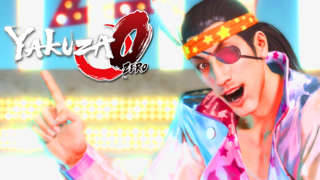
Despite what you might assume a game about a bunch of tough muscley fighting dudes, the amount of moral philosophy in this game could rival a 3-part episode of Star Trek: TNG in terms of surprisingly deep and emotional thought. The struggles the protagonists go through has a huge emphasis on honor, keeping your word, taking responsibility for your actions, standing up to things you think are wrong and persevering no matter how much pain, suffering and threat you personally go through all in the name of trying to be a good person, and emphasizing that the mental fortitude to stand for your convictions is the true strength, not just brawn. Character development is absolutely fantastic and I feel like it’s impossible not to fall for these main characters by the end of the game, no matter how weird or even pigheaded they might seem to you at first.
(Trust me, moral philosophy is probably my biggest autistic hyper-fixation. They did this shit GOOD.)
Another major reason I really love Yakuza 0 is that it takes an unusual setting to the normal person - the incredibly political, dark, yet surprisingly realistic setting of organized bullies, criminals, and the uneducated brawn and bad-attitude baddies of the world and try to show them as worthy of more as humans like you and me than just trash that should not be seen or touched. The amount of humanitarian outlook on these people and the humanitarianism of our protagonists is absolutely heartwrenching and beautiful. Despite appearances, anyone can be a good person - this seems to be a major message in this story which I just find absolutely beautiful.
The yakuza definitely have different rules to their world, and that is one that’s built on violence over paperwork, especially when it comes to showing eachother the extent of their passion about something. I feel like it’s an excellent way of portraying the difficulties any normal person goes through with their mental health while struggling to do the right thing in a very direct and relatably painful way that anyone can understand.
The story deals with not only the importance of preserving life and protecting it with surprisingly pacifist ideologies, but the aesthetics in align with the idea that no matter how dark the world or your life feels, happiness is always an option.
Why you might love Yakuza 0 even if the plot doesn’t sound that interesting to you:
Tons of minigames - I think about 28~30 total. That includes 4 actual vintage SEGA arcade games! There’s also tons of gambling games like black jack and shogi, fishing, rhythm games, bowling, fighting tournaments, pool, darts, stock car racing, doll dressup.. It’s very hard not to find at least one you’ll like!
Tourism. Yakuza 0 has such an incredible amount of visual detail to every nook and cranny of every corner and unseen alleyway in the town maps that it feels just absolutely insane to me. The devs didn’t need to put in all this detail but they did. I could legit spend hours in first person mode just looking at everything. On top of that, every restaurant in town has a detailed menu describing each item despite the fact that all food items are just generic healing items. I think there’s even a bar where the bartender will go on a spiel talking about certain drinks after you order them. The atmosphere really makes you feel like you’re truly taking a vacation in another place. Great for when you’re longing to see new scenery while being stuck at home all the time during COVID.
The amount of optional side quests is absolutely insane. According to a wiki there’s a total of 100 side quests in all. If you’re a fan of JRPGs or a fan of completionism, completing them all gives you a ton of extra content and side-stories that can sometimes be just as gutwrenchingly wholesome or tragic as the main plot, or otherwise be great comic relief.
Speaking of comic relief, this game is notorious for it. The main plot can be incredibly serious and stressful and the devs know that can really wear down on the mental state of the player after awhile, so seeing Kiryu dance at a disco in the most lame awkward embarassing dad way possible, or see him pick up a phone in the most ridiculously over-dramatic way for no reason, or see Goro sing lovey-dovey pop songs is just something that will absolutely kill you with laughter and joy and give you a refreshed break you need to help you be able to keep continuing on.
Big fan of seiyuu (Japanese voice actors)? The karaoke bar lets you hear your protagonists’ gorgeous singing voice. You can even invite some side characters and hear their voices too!
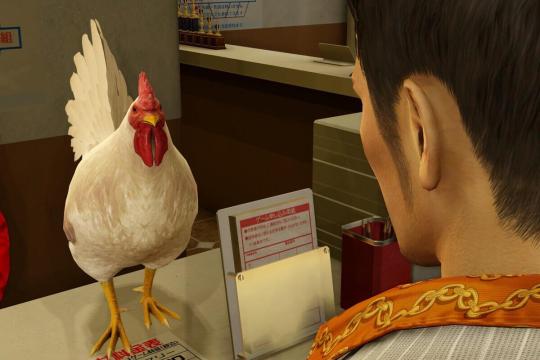
NOW THE FAIR CRITICISMS:
Despite the plot having a huge emphasis on how important the morality is of not killing, fighting animations are often totally lethal. Goro canonically fights with a knife and a bat by the end of the game. Both characters can use guns, swords, poisoned knives, baseball bats and other lethal items as a weapon. One of Goro’s main fighting animations is snapping a dude’s neck. Kiryu threw a dude out of a high window. Kiryu shoots at dudes with a gun in a high speed chase at some point and none of these instances are ever addressed in canon plot as having blood on the hands of these characters - no matter what, the people hurt by these things seem to be able to stand up fine later on like nothing happened. Even the main characters can get shot by an actual gun 20 times in a row and shrug it off by shoving convenience store food down their throat. It’s super dumb but absolutely hilarious in it’s unaddressed B-Movie esque hypocritical nature and became a huge in-joke with the fandom. Despite these Goofy Video Game Logic instances, the main plot (specifically the cutscenes) are all extremely realistic and well done. Actual members of real-world Yakuza say the story is pretty accurate to reality.
One of the minor characters is obviously a trans woman but is misgendered constantly by other characters, including the protagonist (though this may be a translation problem), and is the only female character in the game you can fight and have to fight in order to unlock Kiryu’s endgame fighting style (though he remarks he only fights her because she looks like she can handle herself in a fight). She does end up joining up with you as an ally afterwards without changing anything about herself so that’s a positive, I guess? SEGA is aware of fans’ dislike for transphobia and have removed a lot of transphobic content from their re-releases of future Yakuza games, as well as shown the protagonist, Kiryu, as a huge LGBTQ+ ally.
-----------------
Things you might like or otherwise want to check out relating to the same story style of Yakuza 0 I personally highly recommend:
Kyou Kara Ore Wa!! (aka, "From Today, It's My Turn!!"): Absolutely hilarious gag comedy with surprisingly heartwrenching drama and incredibly lovable in-depth characters. It’s about highschool delinquents in the late 1980s (same era Yakuza 0 takes place!). The two main characters remind me a lot of the protagonists of Yakuza 0 in that one is very straight-laced and honorable while the other is more prone to dirty tricks but still does the right thing in the end. I personally recommend reading the manga above all because adaptations cut out a lot of details that I feel add a lot of depth to the characters, but the OVA anime is pretty good on it’s own and there’s a hilarious live action TV show adaptation if you like slapstick.
Rookies: A story about an impossibly determined formerly disgraced highschool teacher doing absolutely everything he can to be the best teacher he can be. Part of his journey is helping reform a group of delinquents who have self-sabotaged themselves into having their baseball team - the one thing they cared about - disbanded. The delinquents constantly fight the teacher off, believing him to just be another adult putting on airs instead of truly caring, while the teacher perseveres no matter what to prove them wrong. A manga and live action drama - both extremely good.
1 note
·
View note
Text
Reflections from a NYCC Panel: Chronic Illness, Disability, and the Comics Industry
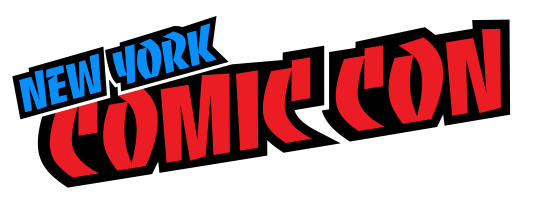
During “The Creative Community, Disability, and Chronic Illness” panel at New York Comic Con this year, two overhead lights flickered nonstop, directly over the seated panelists. For most this was an annoyance – but for the presenter living with epilepsy, it made for a dangerous and unsafe environment. He had to wear sunglasses to avoid a potential seizure and participate in the panel meant to address this exact kind of issue.
It was embarrassing for everyone, and a perfect encapsulation of the state of support that the comics industry provides professionals who live with chronic illness and/or are differently abled. Giving conversations like this space and time at large events like NYCC is absolutely to be applauded, but clearly we are far from properly hearing, implementing feedback, and accommodating this community.
* * *
The panel itself took place in the early afternoon on Friday of NYCC weekend in one of the smaller designated panel/screening spaces. Six panelists and a moderator, all of whom live with conditions that complicate their work, spoke to each other and a room that was about a third full (I’d guess around 50/60 people watching – not a bad turn out).
I slipped into the back of the audience right before the panel kicked off, deciding to attend somewhat at the last minute. I have a family member who lives with a chronic illness (but does not work in comics) - it can be burdensome for her (or any differently-abled or chronically ill person) to explain her day-to-day challenges on top of facing them – so I took this as an opportunity to gain a fuller understanding of what her life and coping may be like, while also learning about comic-specific issues. I mention the context of my attendance only because I believe the majority of the audience at the panel also had a direct or adjacent relationship with disability or chronic illness as well (this assumption comes from audience reactions I observed – nodding at points being made, voiced agreement, questions asked). To some degree that’s a shame – like many things, increasing awareness can be a huge catalyst for change, especially when many of the accommodations that would help this community stem directly from individuals’ awareness.
From the panel’s first minute a steady stream of personal blind spots were revealed to me – a both satisfying (learning more is so helpful) and disheartening (feeling inconsiderate/like a failure at having missed them) process that continued throughout the session. Helpfully, the panelists were all amazing speakers, projecting positivity and a clear desire to educate and spread awareness, even while recounting emotionally-charged, disrespectful, and challenging situations they’d experienced.
The hour-long conversation they held was serious, funny, charming, poignant, sad, hopeful, informative, and too short – but more than anything, it illustrated each panelist’s tenacity and bravery. Recounting difficult personal anecdotes and sharing emotional vulnerability in front of one person can be challenging – this group did it in front of an audience in the service of their community, a demonstration of toughness and grit that should be celebrated.
I was surprised to learn that participating in the panel brought with it a potential risk and necessary braveness in and of itself. Many creators who fit the criteria for the panel turned it down to avoid publically revealing their condition, fearing companies and editors might subsequently not “risk” working with them. While examples of those who had treated the panelists with understanding and accommodation were given, the prevalent fear of losing work & money due to their conditions clearly suggests that decent companies/editors are more exception than rule. The world is already ill-suited to fit the needs of those who are differently abled or living with a chronic illness simply because they are not the majority – it’s a sad reality that this disadvantage is topped off with an increased risk of losing or not being able to find employment. It’s easy to see why this community is so tough and brave – they have no other choice.
The challenge of the comic convention setting was another major topic of conversation during the panel. Attending conventions is necessary to make (or try to make) a living wage in this industry, but most comic cons do a poor job of accommodating the differently-abled and chronically ill. Surprisingly, even those that do offer a range of accommodations typically fail to adequately communicate the resources they’re providing. More than once a panelist would mention an accommodation NYCC provided that other members of the panel were not aware of. What’s the point of these accommodations if the people who need them the most are not actively told they exist? And failing that, shouldn’t this information be easily found?
As time quickly ran out, it felt like the entire room was disappointed – we had only scratched the surface of the topic (not a huge surprise given the complexity of the subject matter) and there was an incredible amount that still hadn’t been addressed – but I left with a bunch of simple, actionable, convention-specific advice that I’d like to summarize below in the spirit of others joining in to support this community:
- Dedicated, easily accessible entrances, bathrooms, and elevators should be provided at conventions for the differently-abled to reduce the body stress this setting creates.
- Designated quiet spaces should be accessible and large enough to accommodate anyone who needs them.
- Often accommodations are limited. Do your best to not unnecessarily take up an accommodation that someone might truly need to get through their day (if you do not need it in such a way).
- Be wary of your surroundings and those behind you when walking. It’s difficult and painful for someone in a chair/with a walker/etc. to have to move to avoid you, and they may not be able to. Don’t stop suddenly in front of someone, be understanding of their level to the ground, and prioritize their difficulty moving through crowds if it eclipses your own.
- Remember that a creator might find crowds and constant (or any) social interaction challenging. Some may need breaks/alone/quiet time to not be overwhelmed with anxiety. Some may literally not be able to recognize or remember faces/pair them with names. Some may lack the ability to pick up on social cues that seem obvious to you.
- Accommodations should be clearly communicated to anyone who might need them. The information should be actively given and easily/clearly accessible.
- No one owes you a disclosure of their condition – be patient, understanding, and assume everyone’s best intentions – and don’t ask for or demand explanations.
* * *
I’d like to wish a huge, gracious and appreciative thank you to the participants from this year’s panel for all they so bravely shared and taught. I have not included their names (which can be easily found) because – and I am honestly not sure whether or not this is the right inclination – I’d hope their work is appreciated before the challenges they live with. It would distress me if sharing this experience and advice resulted in the panelists becoming more known for the condition they live with than their work – all of which is interesting and fantastic, and inherently deserves attention without further context. On the off chance one of the panelists reads this and would like to be identified, I’d happily edit their name(s) in.
Also - I’ve done my best to understand and properly use language around being differently-abled and living with chronic illness, but if I’ve messed up please let me know so I can correct and apologize.
* * *
Thanks for taking the time to read. Below please find the NYCC “The Creative Community, Disability, and Chronic Illness” panel’s official description:
Disabilities, both visible and invisible, can make working in the deadline-intensive, yet creatively rewarding fields of comics/gaming/geek culture especially challenging. Managing energy, coping with pain, depression or other mental health issues, and the added cost of being self employed (no employer benefits) are all candidly discussed in this panel which features professional creators who all have disabilities or chronic health concerns. They will not only share their challenges, but their strategies for success, while being open and honest about their work and their lives, and the way they are perceived by clients. Brandon Kazen-Maddox will provide ASL translation services.
18 notes
·
View notes
Photo
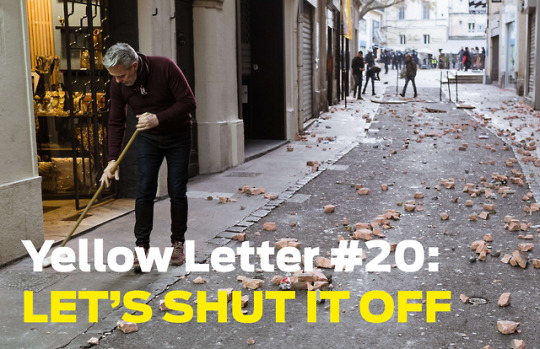
YELLOW LETTER #20: LET’S SHUT IT OFF
Published in lundimatin#176, January 28, 2019
Translated by Ill Will Editions
Since the beginning of the Yellow Jackets movement, mysterious Yellow Letters have been circulated on roundabouts and social networks. With customary poetic and theoretical acumen, this 20th Letter lays the foundations for a strategy of combat: "if the cold reason from above is to give way to the common sense from below, we must gather ever more people." -Lundi matin
***
This world has become logical. It imposes its implacable rhythm on our lives and on our bodies. Those on high ask that we break our backs with nothing to look forward to but disaster. Now they even ask that we join their ranks, that we make a deal with the devil! In fact, it’s only by staying away from their world that we can halt this infernal pace. It’s not too late to reverse the course of things, to sow new seeds on fertile soil. We must no longer be seduced by the refrains of reform, or by their lists of candidates for the European elections! We are the savior we've been waiting for!
It’s time to implement our radical project: a clear separation from the world on high. Local experiments must be set in motion to take back abandoned, polluted, endangered and cleared land! We must rebuild our world from below with our hands, our hearts, our vital force. Today, our fighting strategy must be to gather in ever-increasing numbers, in order that the cold reason from above gives way to the common sense from below.
Let's get down to business! Let's unravel the national and European territory! Let’s relentlessly fill it in with our experience and know-how: let's finally secede! It's no longer about revolt, it is a question of setting up new practical determinations, of creating new ways of being in common! Now that we have, at long last, succeeded in understanding and demystifying the language from on high, let’s come together and build the foundations for yellow houses, yellow communities, yellow lands! Our commons from below must become concrete, active, visible truths! We must engage in a permanent occupation, of the sort we’ve already begun at the roundabouts, but extended to infinity. We know, we have seen, we have experienced that we can count on the immense generosity of this united France.
Let's make sure of it! The man from on high no longer believes in his reality! Having already given up, he now lingers on out of weariness and weakness! Deep down, he no longer even loves the monsters he has fathered, and prefers to hide out in his tower of denial! He doesn't want to admit his mistake! If he still tries to see it through to the end, this is solely in order to prove himself right at all costs! It's up to us, men and women from below, to bring him to acknowledge his misery! Let's bring him down from his desert heights, bring him back to life, to us! It's time we tore up the roots of all the fantastic illusions of this world from on high, which hustles its trash, its death and its sadness to us every day in glittering and shiny packaging!
We are governed today by invisible logics, by algorithms stored in air-tight secure rooms that administer the destruction machine day and night! If we are to live again, these must be destroyed! We must obliterate them! Macron is only the first stage of the rocket! We must certainly overthrow him, but we must also confront these mathematical locales: banks, logistics hubs, shopping centers, large global organizations, stock exchanges! The valorization machine must be blocked and shattered! The death train must be derailed! Let's take back control of this autopilot world!
So, men and women from below, let's leave their networks, our digital boxes, let's leave this mortuary prison! Let's smash the operating systems! No more hesitation! No more backing down! Let's alter the course of the world! Let’s never again be programmed by the world from on high! Let's create our short circuits from below! Spread the Yellow Virus worldwide!
To us.
73 notes
·
View notes
Text
Torture in Fiction: The Dragon Prince
The Dragon Prince is a wonderfully written and beautifully animated cartoon. I don’t usually take on a whole series but I was interested in the pitch and have fond memories of Avatar: The Last Airbender. I was curious to see what the creators had come up with since.
And overall I really enjoyed it. The characters are engaging and the plot is an interesting twist on a lot of typical fantasy tropes. (It also helped that this is the first time I’ve seen an animated character sign.)
The review contains spoilers for the entire season (1) of this cartoon.
After humans started using dark magic, magic drawn from destroying naturally magical creatures, an alliance of elves and dragons drove them to the western side of the continent. In the war that follows humans killed the dragon king and destroyed his egg.
Years later a group of elves sneak into the human kingdom, determined to assassinate the king and his son in revenge. Rayla, the youngest of the assassins, discovers that the egg is intact and alive. With the human princes, Ezran and Callum, she sets out to return the egg, the titular Dragon Prince, to his home.
But once again I’m rating the depiction and use of torture, not the story itself. I’m trying to take into account realism (regardless of fantasy or sci fi elements), presence of any apologist arguments, stereotypes and the narrative treatment of victims and torturers.
Which means I’m not focusing on the main characters or their plot line here. Instead this review is going to focus mostly on three side characters: Runaan, the leader of the elven assassins who kills the human king, Viren, a dark mage and the king’s advisor who takes over the country on the king’s death and Gren a guardsman loyal to Ezran and Callum’s Aunt.
Viren chooses to have Runaan kept alive and imprisons him in a stone cell. He’s chained in a seated position with his hands raised above his head. Viren attempts to bribe and threaten Runaan into revealing information about a magical artifact. Runaan refuses and in retaliation Viren casts a spell imprisoning Runaan’s essence in a coin.
As Viren tries to consolidate power he clashes with the princes’ aunt, a military commander who insists the boys are alive and should be searched for. Viren manipulates her into returning to the front lines but not before she leaves Gren in charge of searching for the missing princes.
Viren has Gren imprisoned. He’s chained in a standing position with his hands kept level with his head.
I’m giving it 2/10
The Good
1) Torture and the threat of torture is used in the context of interrogation but the story shows it failing. Runaan rejects every request for information Viren makes. He also rejects every 'olive branch' Viren extends.
2) Torture isn’t shown changing or even mildly influencing Runaan’s strongly held beliefs. If anything the story shows Runaan’s anti-human stance becoming more entrenched in response to torture.
3) Viren’s motivation for imprisoning and torturing both Runaan and Gren is quite in keeping with reality. Runaan is an enemy soldier. Gren is loyal to the old regime that Viren is actively trying to replace. This makes both of them political enemies, treated as threats to the new regime’s security. That’s incredibly true to life.
4) The timing of Viren’s bribes also felt like a good point to me. Runaan is captured and abused and then Viren attempts to bribe him into cooperation. First he uses food and drink, then he uses the offer of freedom. I don’t know whether it was intentional or not but I liked this element because it supports the notion of Runaan’s opposition becoming firmer as he’s mistreated.
5) I enjoyed Viren’s general characterisation throughout this and the way he justifies his actions. He presents himself as a ‘pragmatist’. He says he’s willing to make the ‘tough choices’ for the good of others and the Kingdom. That’s the kind of torture apologia torturers often parrot.
6) And that view doesn’t go unchallenged in the story. Other characters point out that Viren’s actions mostly benefit himself. His cruelty and his so-called ‘pragmatic’ lack of morals are presented as causing bigger problems than they solve. Together it creates a really good, succinct and understandable portrait of a torturer. It shows him parroting typical torture apologia and it shows why those views are wrong.
The Bad
Both Runaan and Gren should be dead several times over.
The portrayal of stress positions here is frankly appalling. It's difficult to be exactly sure about the passage of time in the story but Runaan is kept with his hands chained above his head for at least a week. Gren is kept standing for days.
Stress positions kill after about 48 hours.
In this case, neither character is depicting as suffering due to the way they're restrained.
Runaan is shown suffering but this is visually and narrative linked to other things. He's bruised because he was beaten when he was captured. His arm is withering due to a curse. He's weak because he's refusing to eat and drink (which should also have killed him, however I’m willing to give that more leeway in a non-human character). But the stress position he's kept in isn't depicted as fundamentally harmful.
This is more or less repeated with Gren. He isn't shown refusing food or drink and he wasn't beaten when captured. His posture in his chains is relaxed. He shows no signs of pain or discomfort. He leans against the wall and whistles. His movement, colouration, coherency and memory all seem to be completely unaffected.
Stress positions are incredibly harmful. They are painful. They cause wide scale break down of muscles in the victim’s body. This initially leads to a build up of fluid in the extremities. Which causes painful, discoloured swelling in the limbs, sometimes to the point that the skin ruptures into blisters. As more muscles are destroyed the protein released into the bloodstream becomes too much for the kidneys to handle and they fail. One description I read described the kidney’s being turned into ‘swiss cheese’.
The result is a protracted, painful death that can occur a significant period of time after the victim is released from the stress position.
The fact that it’s a stress position singled out as a ‘harmless’ torture is extremely significant here.
This is a torture that generally doesn’t leave lasting marks. It’s a torture that’s common in the modern world. And we unfortunately live in a world where torture trials often hinge on the presence or absence of ‘physical proof’.
Scars.
Survivors are regularly dismissed and belittled because they were tortured in ways that didn’t leave obvious marks on their skin. Because their torturers used techniques like stress positions.
Showing these tortures as harmless backs up the societal view that these tortures don’t ‘count’. That the pain these victims experienced was not real and they don’t deserve our help or compassion.
It backs up the notion that these particular victims are to blame for what they suffered.
These aren’t obscure philosophical notions or debates. These tropes, these patterns, these arguments affect our treatment of torture and torture survivors now.
They are part of the social structures that deny torture survivors asylum. They are part of the reason it takes survivors an average of ten years to access specialist treatment.
Presenting these apologist views uncritically to young children isn’t neutral either.
Because even without taking into account parental blockers on internet searches accurate information on torture is incredibly difficult to find. Any curious viewer, of any age, who watches these scenes and searches for more information would come across more torture apologia long before they find research on torture.
Especially as they may not even link what they saw to torture.
A casual viewer would first need to make that link. Then be aware of the term ‘stress position’. Then be aware of the academic journals or niche authors who publish on these topics. And then have access to enough money to pay for those sources.
Some of the sources are not available in translation.
The result is that the overwhelming majority of viewers are likely to accept what they see: that stress positions cause no harm.
These details are small. They don’t get a lot of screen time. They’re unimportant to the plot.
But they are not neutral. They matter.
The way the different ideas at play here interact matters. As does their impact on the real world.
And as a result, despite many good points in the portrayal of torture, I feel like I have to give The Dragon Prince a low score.
Overall
Part of the reason I wanted to review this was to highlight how prevalent torture is in children’s media and how cartoons are often sending out the same misinformation as adult action movies.
The Dragon Prince doesn’t suggest that torture works and it doesn’t justify brutality. But at the same time it’s downplaying the damage torture causes by treating some tortures as essentially harmless. It’s telling that the tortures singled out this way are clean tortures common in the modern day.
The tortures that victims are commonly subject to now, the ones that don’t leave lasting marks, are the ones being singled out as harmless. As not ‘proper’ torture.
The message that only some tortures and only some victims ‘count’ starts young. And the sad thing is the people creating this, writing it and drawing it probably had no idea they were portraying torture when they chose to have characters chained to the wall.
The background knowledge most people have on torture is poor, made up of apologist tropes and rumours and misinformation. But it is so widely accepted that it probably doesn't even occur to most creators to fact-check what they write.
And the result in this case is a wonderfully made cartoon, which includes fantastic representation of disability, of racial diversity and women. While parroting tropes about torture that are actively harmful to victims.
Edit: If creators are not prepared to show the effects of torture then they should not use torture. If those effects are unsuitable for a children’s show then I’m left wondering why they included torture.
Personally, given the level of research these particular creators lavished on other areas, I suspect this was ignorance not malice.
Disclaimer
#tw torture#torture in fiction#the dragon prince#clean torture#scarring torture#torture apologia#stress positions#fantasy
181 notes
·
View notes
Note
Hi! I’m trying to figure out my mbti type, but I have trouble making my decently prolific knowledge of the cognitive functions translate to reality. I can easily understand what the functions do in theory, but I’ve read so much about how they can manifest in many different behaviors and can be associated with so many different enneagram types that I can see/rationalize any combination of types. I’m also prone to doubting my type as soon as I settle on it. (1/7)
Jumping into self description, and the positive side of this tendency, I’m very good at keeping track of lots of complex information at once. It gets me excited. Yesterday I got a high helping eight people at once with their D&D character sheets and keeping in mind all of their races, classes, and complete set of stats. At one point, I came up with a theory compatibility that crossed over the Id, Ego, and Superego elements of the enneagram with the different functions blocks in socionics. (2/7)
It was a load of shit I soon realized, but it was super fun. Part of this ability comes from being super good of keeping track of details like key phrases word for word and part of it is because I get genuinely excited whenever someone breaks something down into categories that I can learn. Some people say I’m an N cause of this tendency, but I have trouble with that because whenever I hear the word deep my eyes roll so far back I can see my brain. (3/7)
Deep subjects are the most tedious and obvious shit, like yeah of course we could all be making the whole world up and we’d never know so what’s the difference, can we please talk about either fun hypotheticals or things that actually happen? And I have the same opinion as you on people who think deep instead of going and talking with their friends (which I do at every opportunity). I really like thrills and high activity levels, but I would never make a decision based on that enjoyment. (4/7)
I avoid danger and drama at every turn except when a friend needs me to handle something for them. I’m told I have a very neutral alignment presence because I don’t do anything reckless (though I encourage reckless people), I never start conflicts (unless like… sexual harassment), and I only really make jokes and complete tasks. I’m very restrained, and have never shared my emotions with more than two other people present. (5/7)
On the upside, I don’t give a single shit what people say about me behind my back because I make wise measured decisions so either they’re saying a flaw I already know about or they’re probably wrong. I’m a very productive person, and in some circles I’m considered cold and robotic because I finish tasks and do a little bit extra before I engage emotionally. I’ve never had trouble with procrastination or time-keeping. (6/7)
I’m very focused, again contributing to the robot vibe, and have had unwaveringly the same long term plan since I was 14 years old (just turned 18). As I guess a postlude, thank you for your help with the long ask! I tried to include as much of my normal writing voice and examples as I could, but I’m eager to clarify whatever! Your blog is fantastic and extremely valid (7/7)
--------------------
I agree that you don’t quite sound like an intuitive type, but you do seem to exhibit some strong Ne tendencies which is why I think you’re an ESTJ:
Si/Ne tendency to connect different mythologies (the D&D stuff)
Good at handling a lot of information at once down to small details in a social group setting indicates both high sensing and extroversion, which led me to consider either Si-aux or dom Se. Your writing made me think Si/Ne but I try not to type off that alone so I considered Se.
Like managing lots of information in particular - not just absorbing but telling people what to do - often a high Te trait.
The stuff about depth definitely sounds sensing (to be clear, I don’t mind if people want to talk about the brain in a vat theory but it’s like okay so we’re brains in vats, cool, now what are you going to do about it. Philosophy is great if it helps you decide things, but it’s really boring to me if there’s never a goal).
Thrills and high activity levels but not reckless - your Ne is developing! You like novelty! Plus you’re an extrovert so you like high activity levels anyway, but you’re a bit too long-term focused to take major risks.
Very emotionally private confirmed high Te was very likely, though I was still to some extent considering if you might be an ESTP 6 (hence sensing and thrills but not a big risk-taker). However, the next paragraph in which you were generally uninterested in what people think is very consistent with low Fi, as well as the low procrastination and high productivity confirming high Te. The final paragraph about remaining focused on a particular end goal also meant Si-aux made far more sense than Se-dom.
I’m not sure about enneagram; I’d look at 6w7 first though just statistically as you don’t sound like the more common ESTJ types of 3 or 8, and do have some general 6 and 7 traits described here.
6 notes
·
View notes
Text
Have a series of drabbles for my Paragon Chronoskimmer nerd, Jude Breckenrdige. It’s a long read, so I’m going to put it under the cut.
(Careful, she’s a disaster)
RETROGRADE
Jude had known that she was an adopted child long before her powers kicked in. Her parents had sat her down when she was just in kindergarten and told her that she had been adopted as a baby but that didn’t mean that she was any less wanted or loved.
Still, it was hard to look back at her brunette parents with a blonde daughter in all the photos. It was hard to see the smile on their faces and wonder if they ever thought about people would think if or when her hair brightened.
It was hard to go back and imagine the exact moment when her mother’s heart broke -- Mrs. Breckenridge, I’m afraid your options are limited. We can keep trying the treatment, but the success rate is not ideal -- and the way her father held onto her mother as if she would break apart if he even dared to think of letting her go.
It was strange to have heard the phrase adoption so casually since the age of five, only to realize at eight that she had never been and never would be her parents’ first pick for a child so much as she was what they settled on.
The realization set something off. Jude fell backwards, but she didn’t feel her back hit the floor. Her vision rewound as her eyes physically shut, and Jude dreamed of things that had been and might be.
Clock Struck One
A girl with your intellect should not still be languishing as an undeclared major. Have you given any thought about what you want to be when you grow up Judith?
“Jude,” the blonde retorted casually and easily as she drummed her fingers nervously on all the papers and pamphlets laid down on the table before her. Her teeth worried her bottom lip as she stared down so many possibilities -- biologist, doctor, geneticist, so many careers with the word ist in the title. “And you really don’t know me that well if you think I haven’t thought about this at all. I have. I’ve thought about this since I was a little girl, but--”
Her teeth pressed down on the flesh of her bottom lip ever-so-slightly harder as she tried to think of a life in the sciences, or maybe a life spent translating or creating languages, or perhaps she should study humans and their various cultural practices, or maybe, maybe.... maybe she was meant to design buildings with rulers and logic and arithmetic.
Jude sighed, buried her head into her hands and peeked at her guidance counselor through the gaps of her fingers.
“Can I try this again next semester? There’s just so many things to think about, so many variables, and I’m just... I’m so overwhelmed by it all.”
In reality, she didn’t want limits on possibility.
After all, why narrow life down to a creek when you could see all the possible rivers leading to an ocean?
Clock Struck Two:
“You realize the point of the war games is the competition, right?”
Jude shrugged and continued scribbling along furiously in her current journal. She scrawled letters to form morphemes to words as if her life depended on it, and if any of the possible futures she glimpsed were true, it was actually her memory that had the dependency.
“You realize you spent most of the war games tied up to the tallest tree in the wooded enclosure scribbling in your journal and eating... what was it in your bag, anyway?”
“Donuts,” Jude replied flatly, only to scrunch her nose when she realized she wasn’t correct. “Actually there were a few pastries? Something strawberry creme filled, but it was mostly sprinkle donuts, whiiiiiich when you think about it, could have skewed my data.”
“What data?” The administrator demanded with an exasperated sigh. “What science could you have possibly been doing after having spent days tied up to a branch in a tall tree gorging yourself on stolen donuts?”
“It was less a science. I haven’t even made a theory yet since I would need to run multiple tests, buuuuuut my hypothesis was that more and more of us rely on our powers rather than our common sense these days, so I wanted to see if I could prove or disprove what I thought.”
“And?”
Jude sighed and set her journal and pen down in her lap as she slouched down low in her chair.
“Well, considering how many days I just stayed up there without doing anything, I think my conclusion was obvious.”
Clock Struck Three:
Jude loved her parents, and she knew they loved her too, but she knew that they definitely did not understand her. At first she thought it had been an adoption things -- that she was the only child they had selected and had tried to groom into something perfect and worthy of carrying their name, only to get saddled with an over-excited genius of a girl who talked with her hands and scribbled her life in journals.
They had been so proud of the report cards and the ribbons she won in grade school science fairs. There were countless photographs of her toothy little grin beaming to the camera as she stood next to a project this or reward that or found herself photographed for the who’s who of american third graders. It was one thing when the intellect was cute, but it was another thing when the intellect was being tested and quantified in laboratories as a possible power, only to be revealed as something natural.
They loved her, but she was something they had never anticipated. The Breckenridge family never thought that the wide-eyed child they adopted as a baby would shatter IQ tests and be inducted into MENSA before entering middle school.
They didn’t expect to find her passed out on the floor, unconscious and unresponsive, nor did they understand what was going on when scans of her brain revealed high levels of activity despite the unconscious state.
Jude knew her parents didn’t understand when she woke up in the hospital and excitedly proclaimed that she had seen so much that had been. She knew that they didn’t understand all the ways that she became unraveled through the times she witnessed.
They were good parents, though, and they did what was best. They sent her to a school that would advance her mind and her powers and give her so many opportunities. They visited. They wrote. They called weekly and sent care packages full of her favorite things -- a new CD of whale songs, new pins for her jackets, and donuts made fresh from home.
They loved her, even if they didn’t understand her, but Jude always felt like she was something they were willing to lose or afraid to understand until her parents visited for a birthday and gifted her with a small blue box.
Jude tapped the top of the box and looked between her mother and father before slowly lifting the lid, and what she saw...
It was a pocket watch, but that was a disservice. The piece was a miniature of the great Astrological Clock in Prague. There were faces for the position of the sun, the moon, the zodiac, the day, and the time. Anyone staring down at the face of the clock and all the various hands would have been befuddled and confused and overwhelmed, but Jude understood even if she didn’t understand why.
“We’ve been meaning to give this to you for a while,” Her mother began, only to choke on her words.
“We don’t understand how your power works, but... we wanted to give you a reminder to come home and come back to us, just in case you needed it.”
Jude set the pocket watch down on the nearest table before enveloping her parents in the biggest bear hug she could muster.
From that day on, she was never seen without the watch on a gold chain around her neck.
Clock Strikes Four:
It was easy to get lost in time.
It was hard to explain how one got lost in time, especially when she didn’t actually travel anywhere. Jude had tried to explain that it was something like astral projection crossed with pre-cognition and post-cognition all rolled into one, but that was an approximation and didn’t explain how it actually felt o have your consciousness hurtled backwards and forwards chronologically.
As a child, she had viewed it as walking through a dense forest with trees filled with coo-coo clock doorways, complete with a cacophony of chimes in various caricatures, but that had been an easy way to get lost in time.
Her view now was like sinking into water deep and dark to the point that not even the hand in front of your face could be seen. If there was light, it was scattered like the light in the ocean. She didn’t navigate time streams through sight, but through sound.
The click of seconds. The shift of sands through a glass. The shanties of sailors as the ship cut through the waves, unaware that that the whales sang songs below.
There was communication in the sound, and it always lead Jude to when she needed to be.
Clock Strikes Five
She was running late, late, late. Jude didn’t need to look at her watch to know that she was not going to be on time. She had stayed up too late studying something or other fantastic, had fallen asleep with her head in her books, and woke up late. Jude had scrambled to change clothes, brush her teeth, and redo her frazzled braid. She raced out the door with her bag dragging behind her on the ground, her coat half hanging on her body, and a strudel near hanging from her lips and bolted towards her first class...
Only to slide to a stop complete with pinwheeling arms to steady her center of gravity when she saw someone walking a german shepherd... or perhaps it was a student walking another student who had shifted into a german shepherd, but Jude didn’t care.
A muffled squeal escaped her lips and she hopped excitedly from one foot to another and frantically tried to flag down the dog (or maybe not’s?) owner to see if maybe, maybe, maaaaaaaaaaybe she could pet it.
Five seconds later, Jude’s strudel was snatched up by a sneaky pup, but even that didn’t sour the joy she felt from scratch the dog behind its ears and calling it a good puppy, regardless of its age.
Class was forgotten too, but somehow she still made it precisely on time.
Clock Strikes Six:
Almost everyone knew to stand at least a pace away from Jude when she got excited about something... and Jude Breckenridge was often excited about something.
There was nothing inherently dangerous about the young woman. Her powers weren’t offensive, and while she wasn’t a slouch in the athletics department, it was easily clear that she was more of a great thinker than she ever would be a paragon of Olympian feats. Still, the girl with wide blue eyes could talk a mile a minute to the twelfth degree, and with that fast-talking zest for the best new favorite thing du jour was a problem...
Waving hands.
Jude was someone who would gesticulate wildly whenever she spoke. Her hands would wave, or she’d slam her palm down onto the surface of a table. The girl couldn’t dance to save her life, but you could bet that her signature move had something to do with noodly arms that made her look more like a car lot blow up mascot than a young woman.
Far too many people forgot about the arms and found themselves whacked as the resident Chronoskimming Paragon jumped to another great new hypothesis to test or an adventure to dive headlong into.
Clock Strikes Seven:
For most of her young life, Jude had been content to dodge the questions of attraction and love. She was too busy to be tied down when other girls her age had been all giggles and gossip and blushed hopes of slow-dancing in the arms of another in a dark gymnasium to some ballad that only seemed timeless until one realized that it simply repeated the same sentiment over and over and over.
Love was like a prism. At first Jude had seen that prism only as a narrowing of perception that she would not and could not fall into.
Time was on her side, to an extent, but she didn’t have time for that.
So she made friends. She had adventures. She helped other students study. She expanded her mind in all the ways she could and scribbled down each and every little thing into her notebooks, because one day all that would remain of her great thoughts would be ink-stained pages.
Love would only slow her down, she had decided, and if she was supposed to be feeling some sort of way about six-pack abs or the flash of a girl’s thighs from under a skirt that was just a smidgeon on the shorter side, well.. whatever that was passed her over.
Except it hadn’t. Jude was not exempt or immune to attraction -- it just hit her late, and it hit her hard, and she only realized it when one of the pins on her bag -- a black circular pin reading “Baby got BOOKS” -- snapped off and clattered to the ground in the library and rolled over to the next row of shelves.
The person who found it and offered it back to her was the most gorgeous boy she had ever seen. His hair was all dark curls to match his eyes and his lips -- oh god when had smirking ever been so... so.. appealing?!
He reached out and took her hand in his and ever-so-gently slid the broken pin into her hand. Jude realized he had said something but all she could think about was the warmth of his hand on hers, and the way his lips... did that thing and god did she just want to stand on her tippie toes or grab his shirt to pull him down so that she could... could...
“Th-thanks!” Jude squeaked before booking it out of the library and into the safety of the open air.
She had thought that would be that, but she was wrong. The next day there was a girl whose hair was so silky and glossy and with eyes so crystal blue, and next week there was a gender-fluid TA who just had the best laugh and habit of spinning pencils in their hands, and all Jude could think about was how nice it would be if those hands wound their way into her hair and... and...
She tried not to think about it, but trying not to think about it made the attractiveness of everyone else amplify, just as it made her throat close up and her voice go all reedy and wispy while her pulse jumped.
Jude realized she had been wrong. Love wasn’t a prism in the sense of narrowing. It was a prism in the sense of a spectrum, and God, was there a spectrum... even if the only thing refracted on to Jude’s face was a dusting of scarlet red.
Clock Struck Eight
It was supposed to be a low-key study session in the library. Jude sat at the head of the table with no less than three books in front of her and her journals stacked one on top of the other on top of the other with the latest held open in her lap. Her ink-stained fingers clutched a pen well on its way to being drained empty, and for a time there was nothing but the sound of a skritch skritch skritch of pen tip on paper until the room fell silent.
Jude’s friends looked up, expecting the worst, only to groan when they saw what the other girl was doing: weaving her fine, blonde hair into a braid without a care for the royal blue smudges being patted into the ends of her tresses.
“You know we’re in for it now, right?” one of her friends remarked just as Jude tied off her braid with an elastic band, slapped her journal shut and set it on the library table.
“Right!” the paragon remarked brightly. “I’m bored of relying on the words of old, dead, mostly-white men. I say we go on an adventure and find some discoveries of our own instead of learning what everyone else has learned. Anyone got any suggestions?”
Jude looked from face to face before remembering herself:
“And it absolutely cannot be something boring. We can go anywhere and do anything so long as it is amazing. I won’t settle for anything less.”
Clock Strikes Nine:
Jude taught herself to see the future as a rainstorm of possibilities -- it was simply impossible to count all of the raindrops and quantify them. It made it easier for her to think that maybe there was a future where she didn’t have to sacrifice possibility and had become a mad genius jack of all trades something-or-other cool and world-changing. It was easy to imagine that one of those possible futures had her saddled with a lifetime supply of donuts because she had found a chemical way to make them significantly less fattening and therefore easy for everyone to enjoy with a guilt-free conscience.
It was so easy to imagine that there was a future where she died happy and burned out of life instead of having her mind consume itself like a dark hole devouring a star.
Still, for all that she had seen and all that she had known, Jude knew that her path had to start with Excelsior...
So she hiked her bag over her shoulder, stepped into the building for her first class, and booked it to the appropriate room before lowering herself into a chair front-and-center to the professor. Her very first class started no less than fifteen minutes later.
It was the first and last time in Excelsior history that Jude Breckenridge was anything more or less than mysteriously on time.
Clock Struck Ten
It could have made for a serene picture: a girl in a pale blue summer dress with her hair pulled back into a blonde braid sprawled out on the green grass under the shade of a tree on a sunny, sunny day. Her fingers were clasped in the hands of one of her best friends, and anyone who passed by would have thought the pair engrossed with the shapes of the clouds on the sky.
A closer look would have revealed the young woman’s eyes -- normally so wide and expressive -- to be shut, as if she were sleeping or dreaming.
And that’s what Chronoskimming looked like -- a slumber not to be woken from. Jude projected her consciousness forward, forward, forward and winding through time while her body slumbered in the present.
She hurtled forward, but overshot her destination. Jude opened her eyes and looked down to find her wrinkled hands folded in her lap, her white braid spilling over her shoulder, and her body clothed from head to toe in black. She was seated in a wheelchair in what appeared to be a park, but there was nothing green save for the grass underfoot. Everything else was monochromatic -- grey skies, grey headstones, white lilies laid on the ground, and black attire flanked by black umbrellas to stave off the rain.
Jude felt the warmth of a tear slide down her cheek as she stared at the gravestone of one of her best friends, and then someone leaned down and whispered to her that it was time to go, and she was being rolled away from the service, and back onto the paved path leading from the cemetery.
She was hurtled backwards then. Jude came back to her body with a pained gasp which turned to ragged sobs when the weight of what she saw came back to her. Her friend turned to her then, and she was being gathered up and held in their arms. She grasped the fabric of their shirt and let herself sob for a few moments before the proximity became too much and good sense returned.
“It’s fine,” she murmured as she gently pushed her friend back and away and then wiped her tears from her eyes. “I went too far and saw too awful, but futures are like... like raindrops -- nearly impossible to count. It might not happen, so why cry about it? Sorry, I’m being silly--”
Jude pulled herself up to stand and brushed the grass from her clothes and tossed her braid over her shoulder. She rounded on her feet and smirked at her still-seated friend:
“Let’s go get donuts! Last one back to campus has to buy!”
CLOCK STRIKES ELEVEN:
Jude Breckenridge has filled many, many, many journals with scribbled writings. Some of her entries consist of scientific discoveries or theories or ideas, while other entries are more personal in nature. Jude has happily let her friends read her journals (provided they can actually read her messy doctor handwriting) but there are some entries that she refuses to acknowledge when questioned, much less explain. One such entry:
“November 1966 - Might need to befriend the mothman. Miiiiiiiiight.”
Clock Struck Twelve (Future)
There was always a constant, even in something as vast and wide as the future. Jude knew that she only saw what could be -- that there was a literal sea of prerequisites that needed to take place to ensure one future over another -- but when she skimmed to the future and saw one event take place over and over and over again, the wide ocean of possibility quickly shrank down to the size and depth of a puddle.
Nobody called her a genius in the future, at least not directly. They called the young woman in the past a genius, but the aged woman with a white braid and dulled out eyes sitting in a wheelchair? Nobody called her a genius, and how could they?
She couldn’t remember anything. Her mind was collapsing around itself and what was left wasn’t the girl genius or the woman who talked so excitedly with her hands or who had blushed just because someone had held her hand briefly while handing her a button.
She was always seated in a wheelchair because she had become -- would become -- too frail to stand on her own two feet after multiple mishaps and accidents. She couldn’t tell anyone what the day was or who was now president or when the last time she had eaten was.
Someone was kind enough to leave her a journal in case she had thoughts she wanted to write down, like in the old days, but the pages remained blank, save for one shakily written word:
Empty
She still liked to wear her hair in a braid, still enjoyed donuts with a childish fervor, and she collected pins and buttons or little knick knacks to hide into her pockets to hand out to the grandchildren when they came along.
Empty
She still wore a watch around her neck -- an heirloom that she had hoped to pass down along with her journals full of thoughts and breakthroughs and discoveries -- but the hands had long fallen still, and the soft tick had fallen to silence long ago.
Empty
Out of all the futures she had seen -- some where she had been a geneticist, others where she had studied the various profiles of powers, others where she had slipped under the waves of the ocean to study marine biology -- the slow breakdown to empty was the only constant.
It was inescapable, like the loom of twilight.
Jude knew it was coming, would come, had come.
So she took precautions against fading. She scribbled down her ideas as if her life depended on it. Perhaps she wasn’t focused yet, but she knew she was meant to change the world before fading out..., and to do that she would need to remember everything.
Even if remembering was hard. Even if remembering was painful... she would still try.
2 notes
·
View notes
Photo
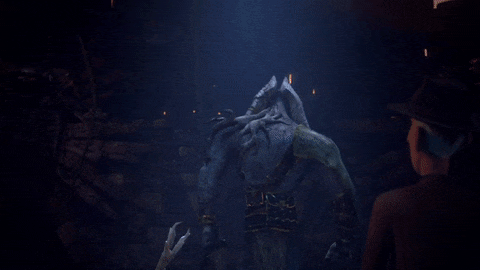
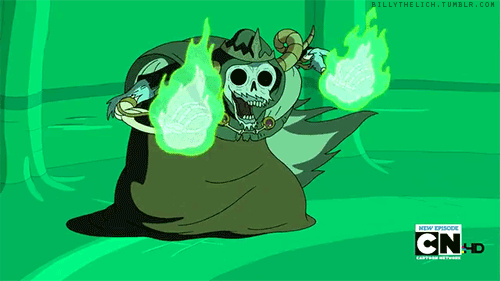
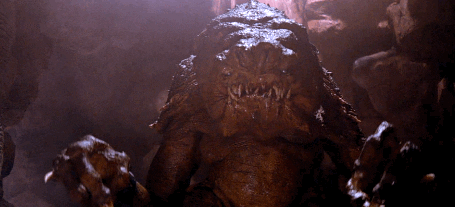
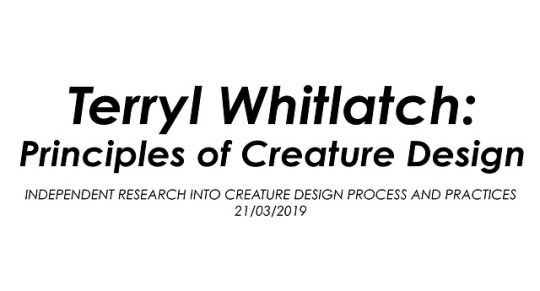
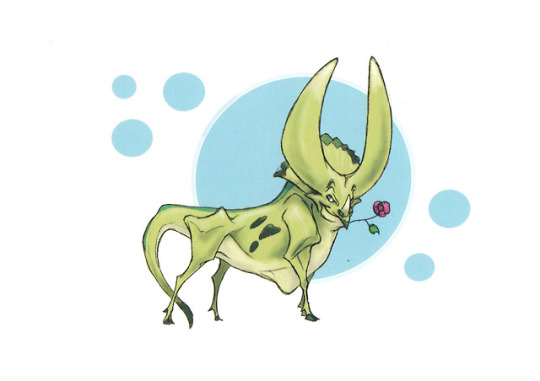
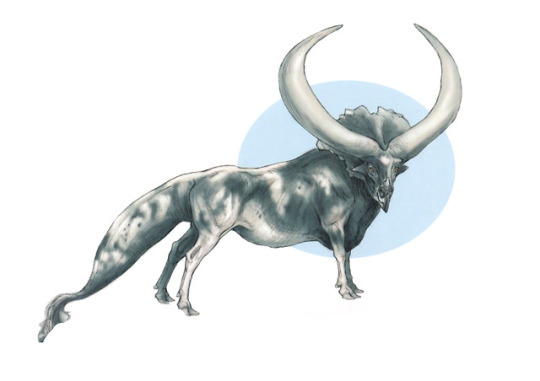
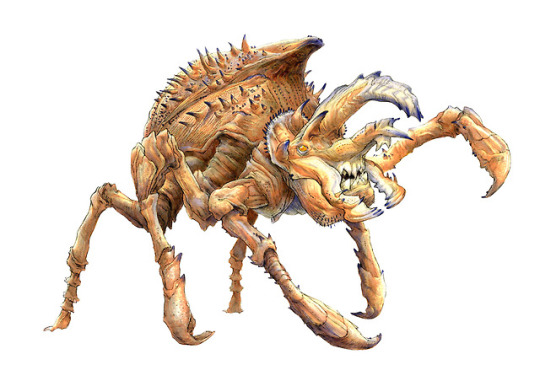
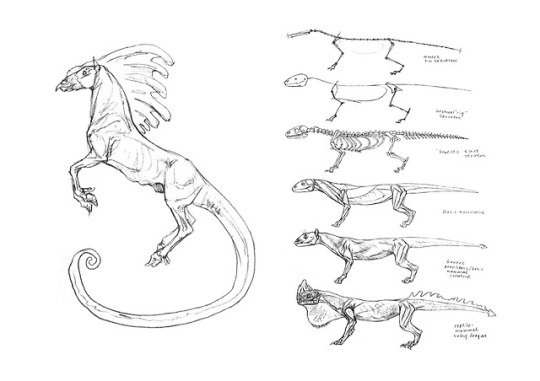
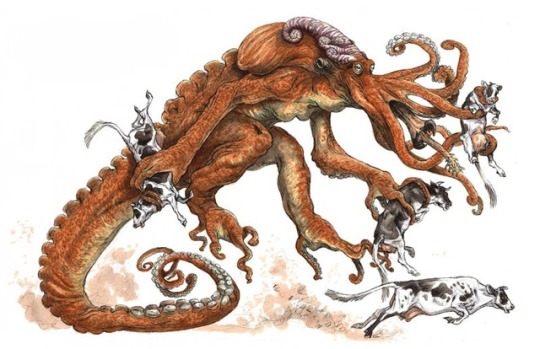
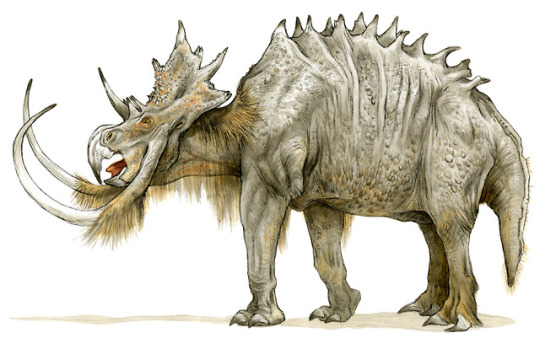
Terryl Whitlatch: Principles of Creature Design
As a preface for my independent research inquiries into the principles of creature design, I want to delve into the basics of the art form. In her book Science of Creature Design, accomplished illustrator Terryl Whitlatch describes her own definition of creature design. In this post, I want to discuss a little about her introduction to the craft and briefly establish a few points to look at further.
What is Creature Design?
We all have some preliminary idea of what creature design is: those ideas mainly consisting of evocative images of otherworldly monsters and beasts galloping, flying or attacking the hero of an epic film or story. But to Whitlatch, creature design is a science, one conjoined with conceptual art and closely allied with paleontological (prehistorical creatures) reconstruction. It is often dependent on the close study of zoological beings, and it is made possible by the artist’s passionate curiosity about, and love for, nature which fuels the imagination.
The term ‘creature’ is derived from the Latin ‘creatura’ which means ‘thing created’. This referred to living or imaginative entities that have biological integrity, such as animals, plants and fungi. Technically, all forms of matter are creatures. In the entertainment industry, ‘creatures’ include living or prehistoric animals or plants, or make-believe organisms inspired by the former.
The Importance of Animals and Anatomy
Something that Whitlatch describes as crucial for creature designers is to foster a ‘love for real animals’. This is one thing that makes ‘all the difference’, as artists tend to produce many sketches of creatures and monsters in formulaic styles of manga and Western animation alike, but often overlook the essential basics of sketching existing animals. To her, this is the real life force of the process, and it is these ‘everyday earthly beings’ who imbue that life force and form into the world of fantasy.
Anatomy, and how it applies, is the cornerstone of creature design. The anatomical structure supports and makes possible the lifestyle, roles and very survival of any animal. In the entertainment industry, it is the knowledge and application of anatomy that supports the script and makes animation possible - it is the backbone of creature design, and an area of the craft that I want to delve into further on this blog as a form of independent research and engagement with the process of creature design.
Whilst creature design is the artistic adaptation of existing or prehistorical animals and organisms, the most fundamental concept of creature design is first and foremost the ‘why’ of the creature. This refers to why a creature looks the way it does, which is answered by ‘what’ it needs to do. It’s important to consider that the anatomical design of an animal, regardless of whether it is an actual animal or invented species, is what allows it to survive in its world. With this, design and story work hand-in-hand. They both drive each other: the particular anatomy of a creature (its design) allows specific abilities required for the creature’s survival within the world, which is dictated by the story.
This is typically the approach used by natural history documentaries, ‘which are great arenas for creature design’ exploration. These use computer-generated imagery, particular for prehistoric beasts, in their productions. Understanding the fundamentals of biology, taxonomy and the anatomies themselves is ‘vital to creature design’ and these are areas I want to briefly dip my toes into throughout this project. It’s important not to skip the design process and jump to modelling within Maya, because it is the anatomy of these creatures that enable them to survive and thrive in their native environments.
In science-fiction and fantasy settings, the same rule applies: the story drives the design. This is essential so that the design enables the audience to suspend their disbelief and become enthralled with the story. The design needs to be consistent with the world it takes place in, and supports the story rather than distracts from it. A dragon, however stylised, should have a working anatomy similar to what we’ve observed in real crocodiles or theorized in dinosaurs. This grounding in reality helps the audience believe in what they are seeing, and the story as a whole.
An idea that I hadn’t really considered about this project was that idea of a story behind my creature. It’s great to design a creature that looks ‘cool’, but a good concept will also explore the ‘how’ and ‘why’ of the creature too: why it looks the way it does, and how this helps it to survive in the natural environment. Whilst my initial sketches will be simply exploring visual ideas and shapes, I will begin considering background and natural set of behaviors for my creature to flesh out the concept, and bring it to ‘life’.
Creature Stylisation
A subject that’s crucial to a creature concept is the style of the design: understanding the difference between a chimera and a discrete creature. A chimera is an imaginary creature stitched together using combinations of fundamentally unchanged anatomies of different animals. These appear primarily in fantasy stories, and examples include mermaids, centaurs and griffins. Think of Harry Potter and the Chronicles of Narnia film franchises, creatures which clearly mix two different animals into one hybrid design. For our introductory workshop, we were tasked with creating a series of these chimera creature designs.
On the other hand, a discrete creature is an existing, prehistoric or imaginary animal that is a distinct species, with its own unique DNA according to that species, often with the ability to reproduce biologically. Examples of these creatures would include the Rancor from Star Wars and any original creature not made of a hybrid technique.
For my own approach to this project, I will be exploring both avenues Whitlatch describes here. Having created a series of chimera beasts combining anatomical elements from two different animals into a single hybrid creature, I also plan to develop discrete creature designs: taking influence from animal reference but developing my own imagined creature designs.
An important factor in creature design is the level of character stylisation, which constitutes a major part of all creature design. This process describes the reinterpretation of realistic anatomy for specific animation or illustration genres, usually for humorous, decorative or fantastical effect. This can be subtle or extreme, but it is nearly always anthropomorphic and demands an anatomical understanding to compete effectively. This is the natural progression in visual development used by most major animation studios, starting from real anatomy to successive stages of stylisation.
In the example shown here, we can see how Terryl’s original sketch for this creature was more realistic and detailed, which was translated to a much more exaggerated and simplified visual style in preparation for animation. Typically, creature designs for animated projects tend to be simplified so they can be animated and move much more freely, allowing animators to focus on the movement rather than overly complicated design.
This process of designing a creature specifically for an animated television series really interests me, and it’s something that I will be looking into in more depth, exploring examples from the hit animated show Adventure Time and how designers take a detailed concept and break it down into a simplified, refined and streamlined design ready for animation. Although I’m not planning on animating my creature design, my plan is to produce a simplified, stylised creature design and so I will be taking these ideas onboard alongside principles of creature design from Terryl Whitlatch and other professionals working in the industry.
As a way to begin my independent research into creature design principles beyond this, next, I plan to look into the use of silhouettes in creature concept art. This was a technique mentioned in the initial workshop, and I want to explore the use of the technique within the context of designing a fantastical creature or animal, through the work and teachings of industry professional Mike Correllio.
1 note
·
View note